I. Home Page
Hello Everyone!
Comp II:
ENGL 1023 – English Composition II
Credits: 3
Instruction continues (from ENGL 1013Links to an external site.) to emphasize developing students’ writing skills. Students write a minimum of five essays in response to readings in the literary genres of prose fiction, drama, and poetry. Students prepare and write a research paper dealing with a book-length literary work. (ACTS Department/Number/Title – ENGL 1023 Composition II)
The Ozarks region is a gorgeous part of the country.

I love the Ozarks for several reasons, but I especially love the fact that the opening of the movie Tuck Everlasting was filmed near Harrison, AR, at Hawk’s Bill Crag. If you look carefully at the movie trailer that I have linked below, you will be able to see that Jesse and Winnie were filmed standing on Hawk’s Bill Crag. Watch until the end, and you’ll get a glimpse of the Crag:
I want to echo what Tuck said during the final seconds of the trailer that you watched:
“Be afraid of the unlived life.”
I believe that literature and writing are ways to experience life more fully. Allow me to share the very first words of the book Tuck Everlasting:
“The first week of August hangs at the very top of summer, the top of the live-long year, like the highest seat of a Ferris wheel when it pauses in its turning. The weeks that come before are only a climb from balmy spring, and those that follow a drop to the chill of autumn, but the first week of August is motionless and hot. It is curiously silent, too, with blank white dawns and glaring noons, and sunsets smeared with too much color.”
― Natalie Babbitt, Tuck Everlasting
Tuck Everlasting is a beautifully written middle-grade novel. The target audience of that book is older kids, but I prefer to think that Tuck Everlasting is an example of fine writing and that it is appropriate for all age groups. Although the first week of August has passed now for 2022, we are still square in the middle of that month. We are still at the very top of summer–at the top of another year. We are at the top of our own Ferris wheels of life, and we are looking at a vast amount of blank canvases and plain white pages in our stories. During this next semester, we’ll begin to journey from this spot where we are today, and it is my sincere intention that you will leave this class with a lot of new tools that will help you navigate the rest of your journeys.
I have several goals for teaching Comp 2 to you, but one of those goals is to help you learn to express yourself better. Self-expression is vital in every aspect of living. In college, you’ll use self-expression as you write essays for many college classes. In business, you will need similar skills of expression to promote yourself and your ideas to employers. Some of you might choose to be creative writers, but creative writing is only a fraction of the various types of writing that you will use during your lifetimes.
Although Comp 2 will require a great deal of time and effort from you, I feel certain that ultimately, you will decide that learning to write better was time well spent. I don’t expect anyone’s first writing drafts to be perfect, but word by word, you will get better at writing. Anne Lamott is a famous memoir writer. I like what she has to say about beginning to learn to write:
“Almost all good writing begins with terrible first efforts. You need to start somewhere.”
― Anne Lamott, Bird by Bird: Some Instructions on Writing and Life
So word by word or bird by bird [as Anne Lamott called it], let’s get started, but I encourage you to consider several steps that will help secure success in this course:
- Create a plan:
- Come to class awake and ready to learn.
- Because there is a great deal of reading AND writing, you cannot afford to get behind in this class. Don’t procrastinate. Comp II should be part of your daily routine from now until Christmas.
- If you do start feeling overwhelmed, or if you don’t completely understand something, let me know as soon as possible. The worst thing you can do is nothing. Remember, I am here to help you.
- Turn work in on time: This one is self-explanatory and relates to the previous two steps toward success. If you don’t turn your work in on time, it might be because you didn’t plan well or it is because you have procrastinated. Either way, if you get behind, it might just destroy the next step to success.
- Maintain a positive attitude: Always ask yourself, “What can I learn from this exercise.” Not, “Why do I have to do this.” Of course, I encourage you to ask me the latter question because I do think it is important to recognize the value of every assignment. I do not believe in busy work. Everything planned for this course has value. Try to keep this in mind. It just might be the difference between success and failure.
Finally, I want to share with you a simple but important mantra: “Progress, not perfection.” Keep this in mind as you work through the semester. Skills take time and practice to develop, so don’t be too hard on yourself. Just keep at it and keep trying. This is how you will succeed.
Ib. Class I (Aug. 15)
- Introduction to class
Week One Assignments
Read Chapter 1 of Your Class Novel Something Wicked This Way Comes before the next class, on August 17.

- In the Glossary of Literary Terms at the back of your main textbook, The Compact Bedford Introduction to Literature, look up the definitions for the following terms:
- allegory
- antagonist
- archetype
- character
- cliché
- figures of speech
- foreshadowing
- genre
- image
- metaphor
- paraphrase
- protagonist
- setting
- simile
- symbol
- theme
- thesis.
Understand these terms. You will need to refer to some of these terms when you are writing your papers for this class
ASSIGNMENT: Paraphrase each of the definitions of the words in the previous list and write your paraphrased definitions. You will submit your definitions for a grade. Watch the following video about paraphrasing:
In the video about paraphrasing, it is suggested that you use synonyms in your work and that you consult a thesaurus to select synonyms. I use a thesaurus every day. The site thesaurus.com is bookmarked on my computer. It is a free site
- Thesaurus.com is both an online thesaurus and an online dictionary.
- Once you go to thesaurus.com, you can click the dictionary.com link and have ready access to a dictionary, too. I RARELY write ANY thing without using thesaurus.com
What is a Symbol? What is Symbolism?
Read about Symbols in Literature:

During the first class on August 15, I mentioned several times that I am more like you than you can imagine. Can anyone tell me the ways that I said that I am like you?
Listen to a Song that Seems to be Pertinent to this Discussion”
Blast to the Past in Music – Neil Young – Born in 1945

Old Man Take A Look at My LifeLinks to an external site.
“Old Man” Lyrics
“Old man look at my life,
Old man look at my life,
I’m a lot like you were.”Old man look at my life,
Twenty-four
and there’s so much more….”
I’ll stop there for a second — Neil Young wrote this song and performed it when he was 24, but Neil Young is 5 years older than I am. He was 24 in the year 1964. That was 58 years ago–more than half a century ago. It is almost like now he should sing another song: “Young man look at my life, I’m a lot like you are.” That would be my song today.
I have already told you that we’ll talk about the symbols and themes of darkness versus light several times in this class, but we’ll also spend a great deal of time talking about the Circle Game or the Wheel of Life.
Prologue
“First of all, it was October….” Bradbury Something WickedThis Way Comes
In the 6th word of the book Something Wicked, Bradbury has signaled that he is referring to October–both actually and symbolically. Ray Bradbury wrote about October in several of his short stories and books. In the novel Tuck Everlasting, Natalie Babbitt wrote about August in a similar way. Both authors mentioned these months in the Prologues of their books.
Many writers have commended Ray Bradbury as having been instrumental in their writing careers:


“I was warped early by Ray Bradbury… As a young teenager, I devoured Ray Bradbury’s Fahrenheit 451.” – Margaret Atwood -Author of The Handmaid’s Tale and other titles

“Without Ray Bradbury, there would be no Stephen King.” – Stephen King Author of too many books to name

“I can imagine all kinds of worlds and places, but I cannot imagine a world without Bradbury.” Neil Gaiman – Author of “The Sandman” and numerous other books

Ray Bradbury first published Something Wicked in 1962, but he had written bits and drabs of that book much earlier.

For instance, his book Illustrated Man was initially published in 1951.
Illustrated Man is a book filled with short stories–all of the tales can be read in the tattoos on the man’s back.
Tattoos are also part of Bradbury’s later book Something Wicked This Way Comes.
In 1948, Bradbury wrote a short story titled “The Black Ferris.” Initially, “The Black Ferris” was printed in a volume of stories called “Weird Tales.”
After that. The Black Ferris was re-released as a comic book, which I believe was the predecessor of today’s graphic novels:
The E.C. comic book version of the Black Ferris was published in 1953. Somehow I see a connection between that story and Bradbury’s later novel Something Wicked This Way Comes, but I also see a connection to Natalie Babbit’s Tuck Everlasting, which was first published in 1975.
In Tuck Everlasting, Babbitt tells us that August rests near the very top of the Ferris Wheel.
The Prologue of Tuck Everlasting
Keep in mind that the Prologue of Tuck Everlasting is before Chapter 1. Note that before the first chapter of Tuck, Natalie Babbitt had introduced at least 3 literary themes. One theme that she introduces in the Prologue is that of the Seasons of Life.
The first paragraph of the Prologue to the book Tuck Everlasting begins as follows:
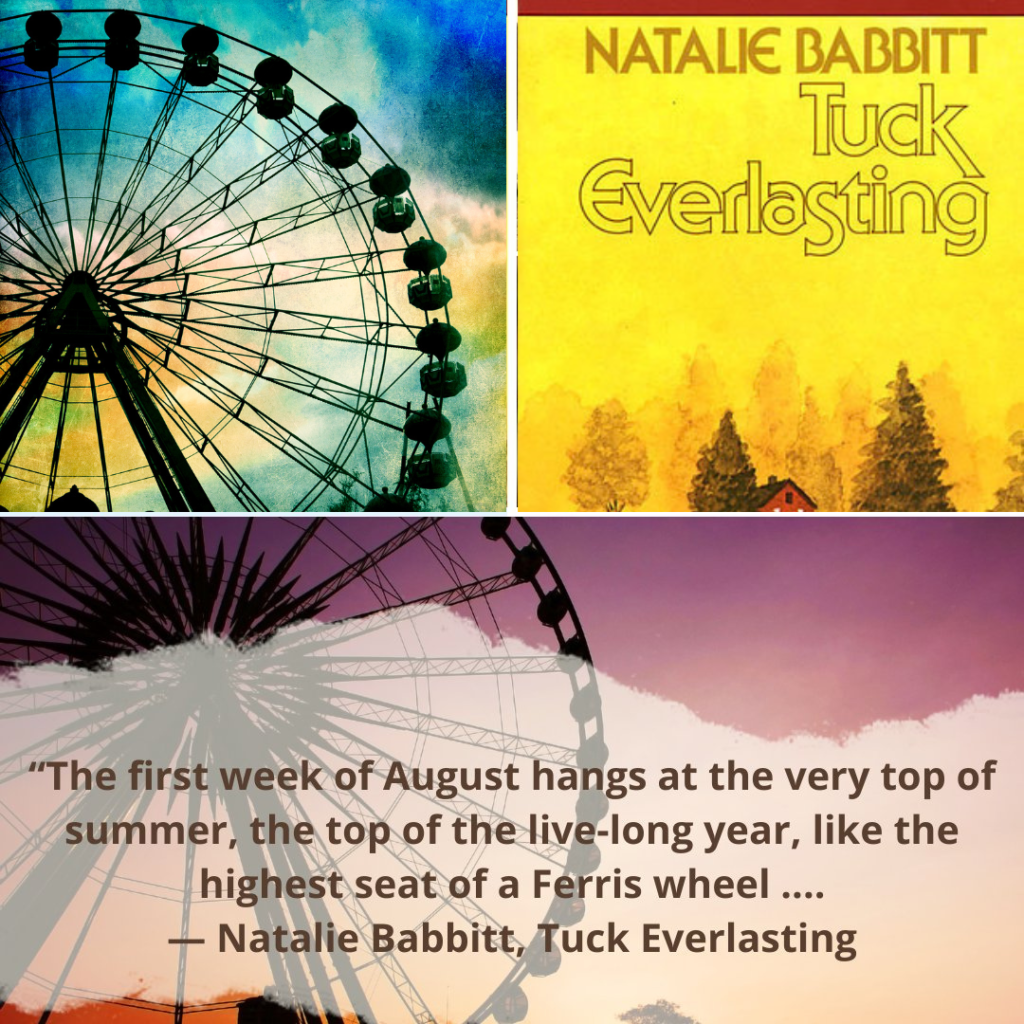
Tuck Everlasting
Prologue
“The first week of August hangs at the very top of summer, the top of the live-long year, like the highest seat of a Ferris wheel when it pauses in its turning. The weeks that come before are only a climb from balmy spring, and those that follow a drop to the chill of autumn, but the first week of August is motionless and hot. It is curiously silent, too, with blank white dawns and glaring noons, and sunsets smeared with too much color.” Babbitt, Tuck Everlasting
Within five words of the Tuck Everlasting’s beginning, Babbitt alludes to the months of the year and compares the calendar to a Ferris wheel.
Babbitt begins the book by mentioning the month of August, which is a month that lands at the end of summer–just before the beginning of fall. In literature, seasons are often symbolic. Spring is often symbolic of childhood, summer is the time of youth and young adulthood.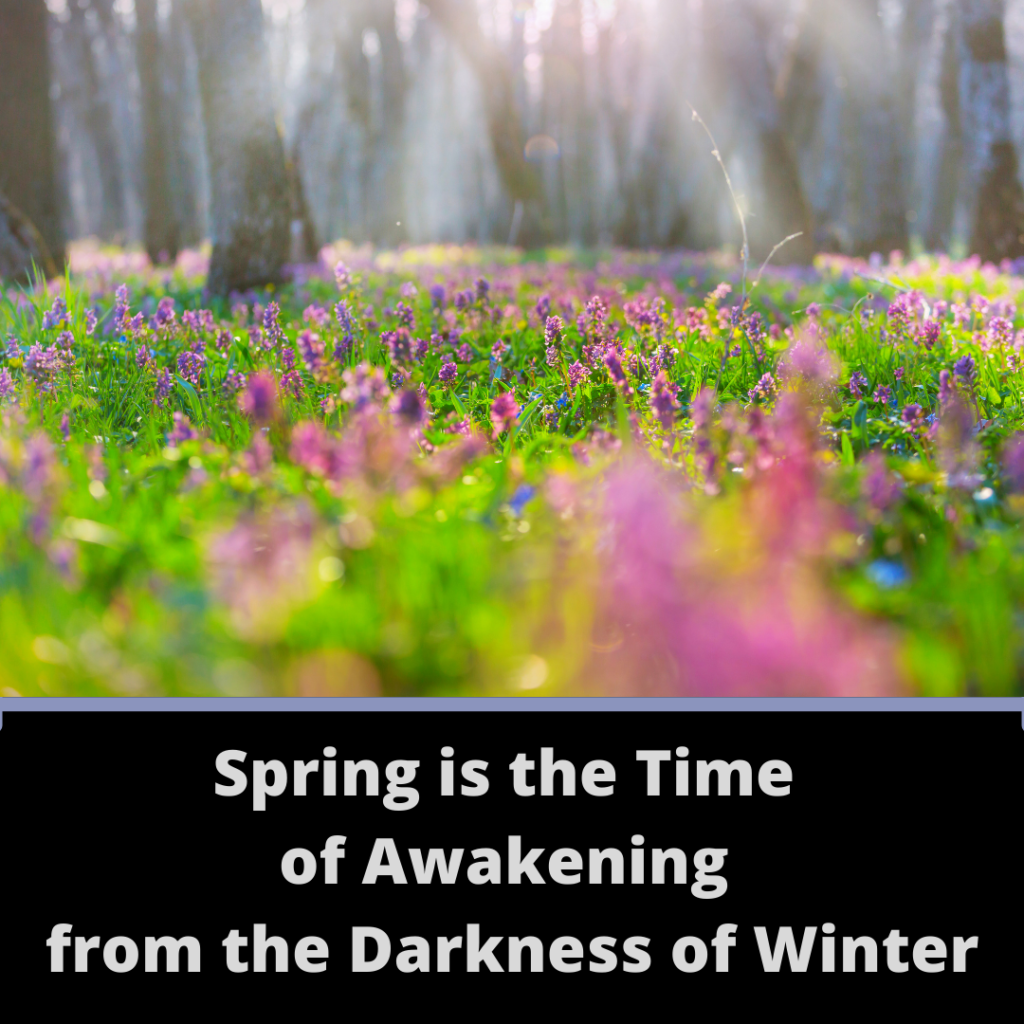
Spring is often symbolic of childhood, summer is the time of youth and young adulthood.

Summer is a time of hot, pulsating energy.

Most high school and college students are enjoying the summers of their lifetimes.
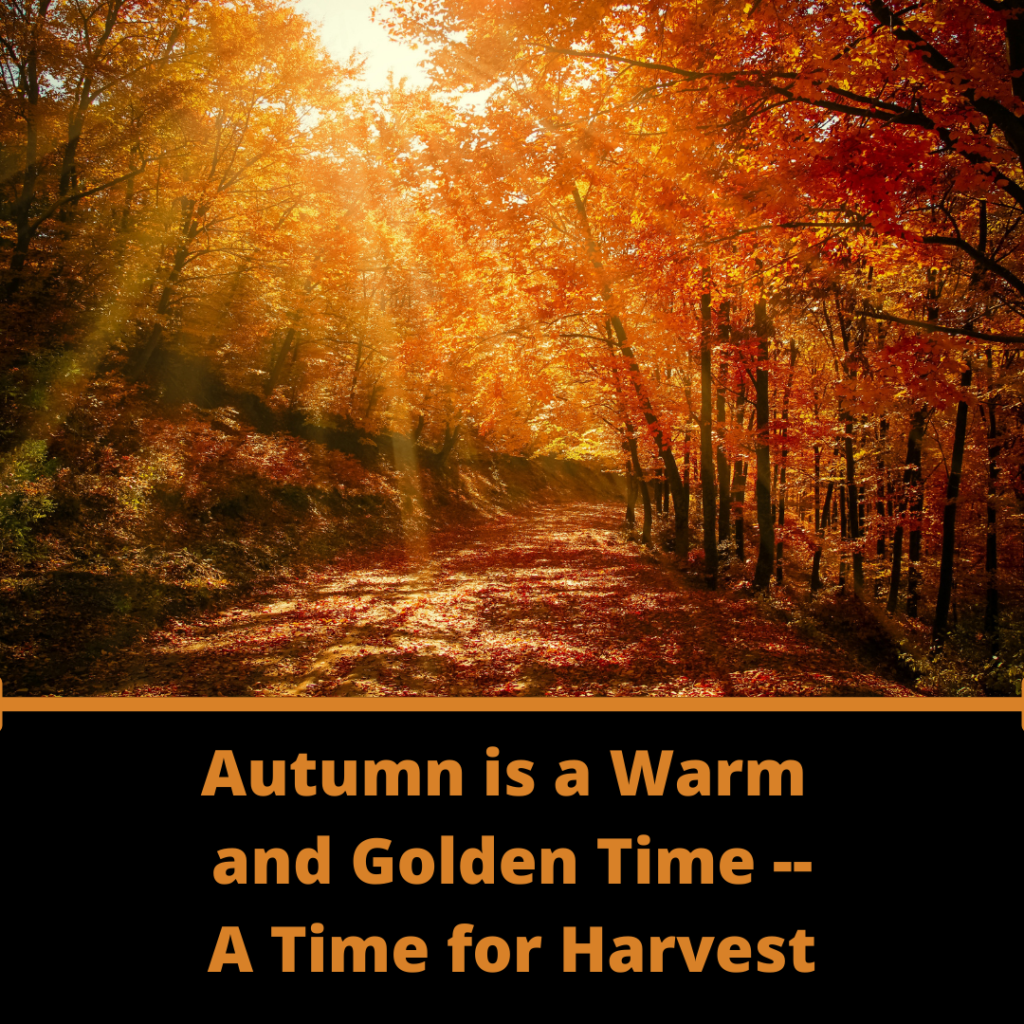 Symbolically, autumn is nearer the end of a person’s life. It is a slower, more golden time. It is a time for reflection and harvest.
Symbolically, autumn is nearer the end of a person’s life. It is a slower, more golden time. It is a time for reflection and harvest.
“The first week of August hangs at the very top of summer, the top of the live-long year, like the highest seat of a Ferris wheel when it pauses in its turning.” Natalie Babbitt

In her own words, Babbitt says that August is NEAR the top of the Ferris wheel.

In the Prologue of Something Wicked This Way Comes, we are told that this novel is set during the month of October. If we look at the Ferris wheel again, we see that October is one of the earlier months of autumn, and we should look for older people who will have significance in the book.
In chapter 1 of Ray Bradbury’s Something Wicked This Way Comes, we meet Tom Fury, “the seller of lightning-rods.” He is living in the autumn of his life. Soon, we’ll also meet Will Halloway’s dad, and he is also living in the autumn of his life.
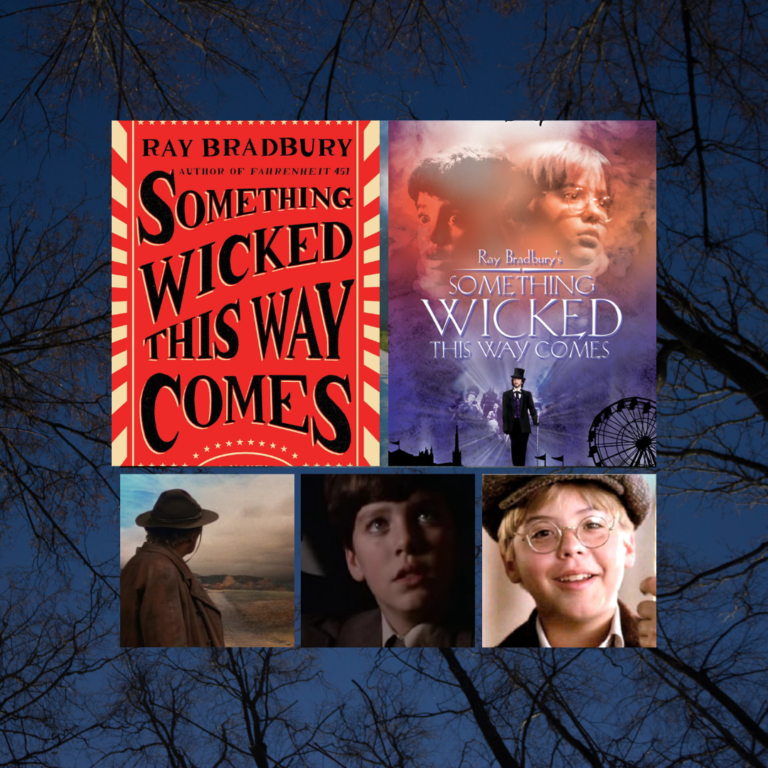
Will Halloway and Jim Nightshade are in the first stages of the summers of their lives, and Bradbury paints them as energetic, robust kids. They are filled with the vitality of life.
Before you start reading Something WickedThis Way Comes, I want you to consider annotating and highlighting your novel as you read:
Read the Prologue and Chapters 1 – 5 of Something Wicked This Way Comes
As we continue with other classwork, you will continue to read Something Wicked This Way Comes on your own.
Use a highlighter to highlight important passages and consider using tabs to help you find important material later. I recommend using Golcellia Transparent Sticky Notes, which are available from Amazon.
Read “Textual Evidence: Using Quotations, Summarizing, and Paraphrasing” Meyer and Miller, pages 1488-93
III. Class III (Aug. 22)
During the next class session, I’ll be announcing your first major paper assignment, but don’t worry about this. I’m going to walk through the process of creating a paper with you. Today, we’ll talk about Plagiarism and How to Format Quotes. You have already worked on Paraphrasing, and that is another important thing to understand about writing college papers. Paraphrasing is one way to avoid Plagiarism. Quoting correctly is another way.
Read about Georgia Douglas Johnson and read her poem “Youth.” Meyer and Miller 845-846.
Youth
Georgia Douglas Johnson – 1880-1966
The dew is on the grasses, dear,
The blush is on the rose,
And swift across our dial-youth,
A shifting shadow goes.
The primrose moments, lush with bliss.
Exhale and fade away,
Life may renew the Autumn time,
But nevermore the May!
Let’s Think about How Roses Bloom: They Bloom in Stages:
- First, the rose bloom is in bud form.
- A bloom opens out of that bud. A newly blossomed bloom is said to be in the blushing stage.
- A rose bloom quickly fades and then withers and dries away.
Important Note about Roses: May is the Month that Most Roses are in Full, Blushing Bloom.

Gene Boerner Rose – Jacki Kellum’s Garden in May
The above photo shows one of my rose bushes during the month of May. One of the blossoms is a baby, and another is in full bloom. Some roses bloom again, but most roses–especially the old garden roses–bloom only one time each year, and that is during May. During the final stage of a rose blossom’s growth, the bloom withers and dies.

During the Previous Class, we talked a bit about the characters who were introduced in Chapter 1 of Something Wicked This Way Comes. In the book, Jim and Will are in the early summers of their lives.
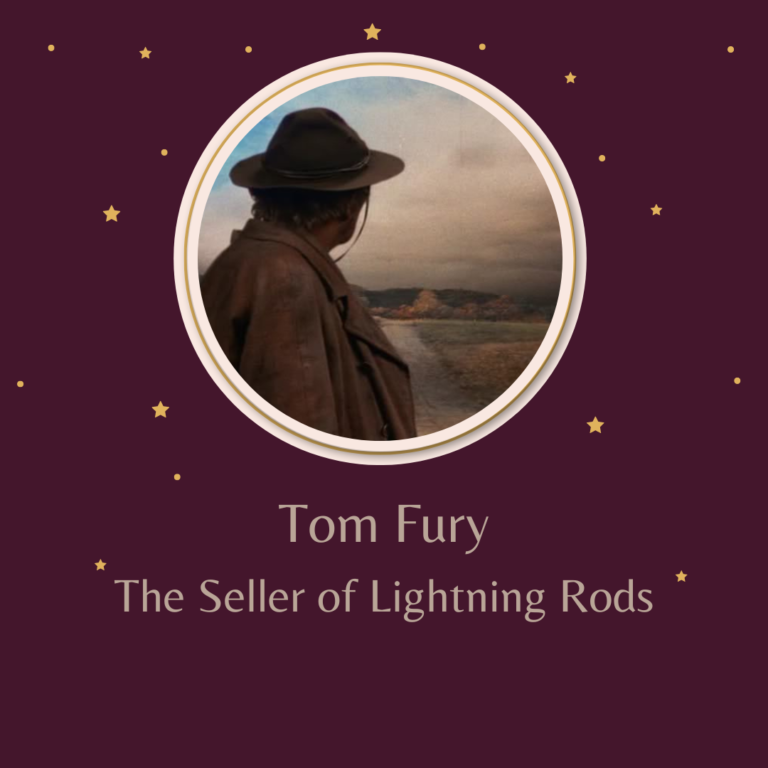
In the novel Something Wicked This Way Comes, both Tom Fury and Will Halloway’s father are living during the late autumns of their lives.
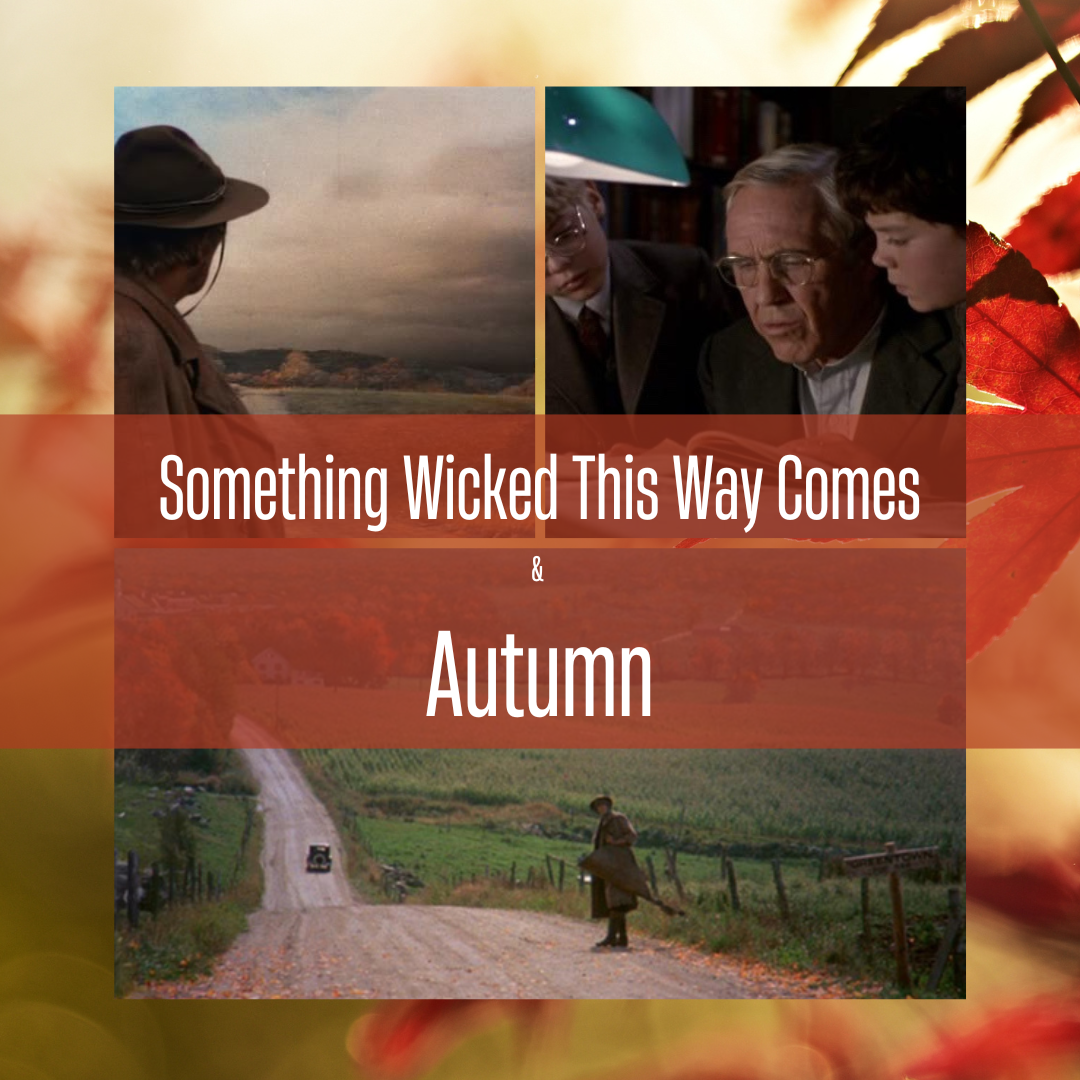
In chapter 1 of the novel Something Wicked This Way Comes, Tom Fury is an example of foreshadowing in writing:

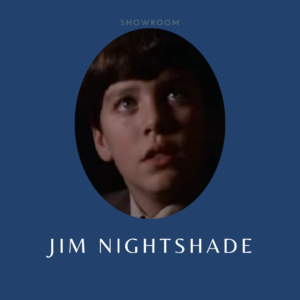
Will Halloway and Jim Nightshade are also examples of the symbols of dark versus light.
__________________________________________
*Let’s Learn How to Use Quotation Marks:
Watch the following video about the use of quotation marks:
- Use quotation marks at the beginning and end of a direct quotation: direct quotations use exact words.
- You do not use quotation marks in indirect quotes.
The Following is an Indirect Quote that has been Paraphrased:
She said that Percy is a very sleepy cat.
Note the word “that.” You will often see the word “that” in an indirect quote or in paraphrasing.
Examples of Quotations with Speaker Tags at the End of a Sentence:
I said, “Hello there.”
He asked, “Do you guys want to go to the mall?”
The librarian whispered, “Please keep it down.”
Mark said that he needed to leave at 5. – indirect quote–no quotation marks.
Examples of Quotations with Speaker Tags at the Beginning of a Sentence:
“I’ll be home soon,” he said.
“Can you come over?” I asked.
“Put that down!” she yelled.
“You’re a great friend,” she told me.
“Are you sure you want to do that?” I asked him.
“I loved you!” she screamed.
I’m not sure that’s what he said.
Examples of Quotations with Speaker Tags in the Middle of a Sentence:
“When you get home,” I said, “can you call me?”‘
Notice that the word “can” is not capitalized because the above example is one long sentence. It is merely interrupted by the words “I said.”
In the following example, there are 2 sentences, and the capitalization reflects that.
“I need some help,” she said.
“Can you come over?”
Examples of Quotations in “The Three Little Pigs”
This version of The Three Pigs is in the Public Domain
Example 1: A Direct Quote
The first little pig said, “We will go out into the world and try to make it on our own.”

Example 2: A Direct Quote in Mid-Sentence
The first pig that went off met a man with a bundle of straw, and said to him, “Please, Man, give me that straw to build me a house,” which the Man did, and the little Pig built a house with it.
Notice that when the quote is in mid-sentence, a comma ends the quote and not a period. The period comes at the end of the sentence.

Example 3: Direct Quotes with Different Speakers in Succession.
Presently came along a Wolf and knocked at the door. He said, “Little Pig, little Pig, let me come in.”
To which the Pig answered, “Not by the hair of my chinny chin chin.”
“Then I’ll huff and I’ll puff, and I’ll blow your house in!” said the Wolf. So he huffed and he puffed, and he blew his house in, and he ate up the little Pig.
____________________________________
IV. Class IV (Aug. 24)
Roses Are Another Symbol in Literature
Anyone who has survived Valentine’s Day in the USA knows that the Rose is a symbol for Love.
from Maud (Part I)
BY ALFRED, LORD TENNYSON
“Come into the garden, Maud,
For the black bat, night, has flown,
Come into the garden, Maud,
I am here at the gate alone;
And the woodbine spices are wafted abroad,
And the musk of the rose is blown.
_________________________________________________
“A man is like a lion” is a simile.
The Rose
by Amanda McBroom
Sung by Bette Midler
Some say love, it is a river
That drowns the tender reed.
Some say love, it is a razor
That leaves your soul to bleed.
Some say love, it is a hunger, an endless aching need.
I say love, it is a flower,
And you its only seed.
It’s the heart, afraid of breaking,
That never learns to dance.
It’s the dream, afraid of waking,
That never takes the chance.
It’s the one who won’t be taken,
Who cannot seem to give.
And the soul, afraid of dyin’,
That never learns to live.
When the night has been too lonely,
And the road has been too long,
And you think that love is only
For the lucky and the strong,
Just remember in the winter
Far beneath the bitter snows,
Lies the seed, that with the sun’s love,
In the spring becomes The Rose.
Writer(s): Mc Broom Amanda
“The Rose” is loaded with figures of speech.
Let’s name the metaphors in the song “The Rose.”
love, it is a river
love, it is a razor
love, it is a hunger
love, it is a flower,
It’s the heart, afraid of breaking,
That never learns to dance.
It’s the dream, afraid of waking,
That never takes the chance.
It’s the one who won’t be taken,
Who cannot seem to give.
And the soul, afraid of dyin’,
That never learns to live.
the seed, that with the sun’s love,
In the spring becomes The Rose.
Sometimes a rose’s Thorns are the symbols in a literary piece.
“We can complain because rose bushes have thorns, or rejoice because thorns have roses.”
― Alphonse Karr, A Tour Round My Garden
[Verse 1]
There’s a thorn tree in the garden
If you know just what I mean
And I hate to hurt your feelings
But it’s not the way it seems, ’cause I miss her
[Verse 2]
She’s the only girl I’ve cared for
The only one I’ve known
And no one ever shared more love
Than we’ve known and I miss her
___________________
Even though symbols are fairly reliable tools for understanding what writers are saying, the reader still needs to read closely. The writer may be using the symbol in a satirical way.
satire
Let’s look at another rose poem and try to understand whether or not the poet is being satirical:
One Perfect Rose
by Shirley Jackson
A single flow’r he sent me, since we met.
All tenderly his messenger he chose;
Deep-hearted, pure, with scented dew still wet—
One perfect rose.
I knew the language of the floweret;
“My fragile leaves, ” it said, “his heart enclose.”
Love long has taken for his amulet
One perfect rose.
Why is it no one ever sent me yet
One perfect limousine, do you suppose?
Ah no, it’s always just my luck to get
One perfect rose.
— Dorothy Parker, for more see Dorothy Parker: Complete Poems
“amulet
a small object worn to ward off evil, harm, or illness or to bring good fortune; protecting charm.” dictionary.com
____________
YOUR NEXT READING ASSIGNMENT IS TO READ A SHORT STORY THAT SEEMS TO BE ABOUT A ROSE.
“A Rose for Emily” by William Faulkner
What Is a Short Story?
A Short Story is a tale that is told with significantly fewer words than those which comprise a novel.
At one time, novelists increased their earning potential by publishing short stories in monthly magazines. Today, short stories are more often found in volumes of short stories. Ray Bradbury wrote numerous short stories. Some of them were published in Science Fiction magazines, and some of them are published in books–as collections of short stories.

William Faulkner was a famous writer who lived in Oxford, Mississippi. Oxford is where Ole Miss or the University of Mississippi is located, and while I was in school at Ole Miss, I had a job, working as a junior curator in Faulkner’s home Rowan Oak.

Faulkner was primarily a novelist, and he was the epitome of a Southern writer.
He wrote about the semi-fictional Yoknapatawpha County:
He also wrote a few short stories, and his short story “A Rose for Emily” is an example of Southern literature.
Read about William Faulkner and “A Rose for Emily” Meyer & Miller pgs. 40- 46.
Read Perspective Meyer & Miller pg. 47-48.
Read A Sample Close Reading Meyer & Miller pgs. 48-49.
Re-Read Chapter 1 of Something Wicked This Way Comes.
Writing Assignment: Based on chapter 1 of Something Wicked This Way Comes, write 2 paragraphs. In one paragraph, describe Will Halloway. In another paragraph describe Jim Nightshade. Each paragraph should have at least 5 sentences. I want you to use at least two transition words or phrases in the two paragraphs that you write–at least one transition word or phrase in each paragraph–and another one between the 2 paragraphs. The transition word between the two paragraphs should somehow link the two paragraphs. In other words, you will be using three transition words or phrases.
You will write a paper for this class that is based on the novel Something Wicked This Way Comes. Save all the writing assignments that you do about Something Wicked. They will save you time and effort later.
Let’s Look at Transition Words. They Will Help You Improve Your Writing:
V. Class V (Aug. 29)
During the previous class, we spent some time talking about the lyrics to the song “The Rose,” and we talked about Roses as Symbols in Literature. You were asked to read William Faulkner’s short story “A Rose for Emily.”
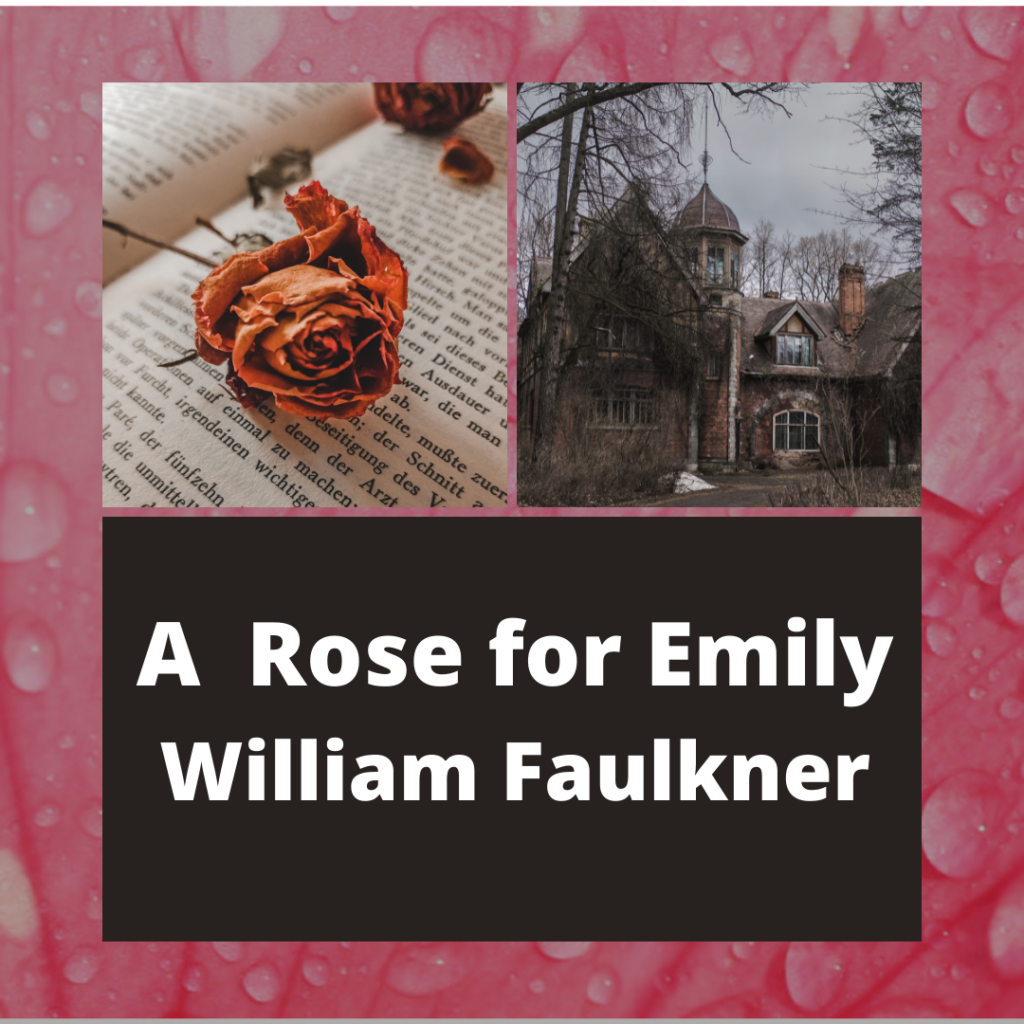
Before we talk about the story, “A Rose for Emily,” let’s talk about William Faulkner and his Yoknapatawpha County for a moment:
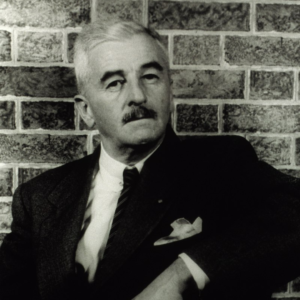
“William Faulkner…(born September 25, 1897, New Albany, Mississippi, U.S.—died July 6, 1962, Byhalia, Mississippi.
[Faulkner was an] American novelist and short-story writer who was awarded the 1949 Nobel Prize for Literature. As the eldest of the four sons of Murry Cuthbert and Maud Butler Falkner, William Faulkner (as he later spelled his name) was well aware of his family background and especially of his great-grandfather, Colonel William Clark Falkner, a colorful if violent figure who fought gallantly during the Civil War, built a local railway, and published a popular romantic novel called The White Rose of Memphis.” Britannica
Faulkner’s “A Rose for Emily” was published in 1930, but the period of the story dates back to the 1800s–to a time not long after the Civil War. The lifestyle of white Southern planters was radically altered by the Civil War. Since slavery was abolished as a result of that war, the planters lost the laborers who had harvested their cotton and they suffered financially. However, many Southerners refused to acknowledge that their statuses had changed.
Outlining is a good way to help understand what you are reading. Outlining is also a good way to organize your thoughts before writing a paper. Let’s practice outlining:
Understanding the Structure of an Outline:
Under each Roman numeral, you will begin with A, B, C, etc.
You start the A, B, C again when you shift to a new Roman numeral:
If you have a point A, you must have at least one more point beneath each Roman numeral
- I. xxxxxx
- A. xxxxx
- B. xxxxx
- II. xxxxx
- A. xxxxx
- B. xxxxx
Assignment: Outline Faulkner’s Story “A Rose for Emily.” I’ve provided the following framework for you. Write full sentences to paraphrase more information for points A. and B. in the outline:
Each Blank counts as 1 point. If you use direct quotes, use quotation marks. If you paraphrase, you do not need to use quotation marks. Your responses can be a combination of quotes and paraphrases.
If you try to answer a question and get it wrong, I’ll deduct 1 point. If you don’t try to answer at all, I’ll deduct 2 points. If you do not submit this test, your grade will be -222 points. Otherwise, your grade might be +111 points. This test paper is due Sunday, September 11. No late dates. Sunday–all or nothing.
1. “WHEN Miss Emily Grierson died, our whole town went to her funeral: the men through a sort of respectful affection for a fallen monument, the women mostly out of curiosity to see the inside of her house, which no one save an old man-servant–a combined gardener and cook–had seen in at least ten years.”
I.
A.
B.
2. “It was a big, squarish frame house that had once been white, decorated with cupolas and spires and scrolled balconies in the heavily lightsome style of the seventies, set on what had once been our most select street. But garages and cotton gins had encroached and obliterated even the august names of that neighborhood; only Miss Emily’s house was left, lifting its stubborn and coquettish decay above the cotton wagons and the gasoline pumps-an eyesore among eyesores. And now Miss Emily had gone to join the representatives of those august names where they lay in the cedar-bemused cemetery among the ranked and anonymous graves of Union and Confederate soldiers who fell at the battle of Jefferson.”
II.
A.
B.
3. “Alive, Miss Emily had been a tradition, a duty, and a care; a sort of hereditary obligation upon the town, dating from that day in 1894 when Colonel Sartoris, the mayor–he who fathered the edict that no Negro woman should appear on the streets without an apron-remitted her taxes, the dispensation dating from the death of her father on into perpetuity. Not that Miss Emily would have accepted charity. Colonel Sartoris invented an involved tale to the effect that Miss Emily’s father had loaned money to the town, which the town, as a matter of business, preferred this way of repaying. Only a man of Colonel Sartoris’ generation and thought could have invented it, and only a woman could have believed it.”
III.
A.
B.
4. “When the next generation, with its more modern ideas, became mayors and aldermen, this arrangement created some little dissatisfaction. On the first of the year they mailed her a tax notice. February came, and there was no reply. They wrote her a formal letter, asking her to call at the sheriff’s office at her convenience. A week later the mayor wrote her himself, offering to call or to send his car for her, and received in reply a note on paper of an archaic shape, in a thin, flowing calligraphy in faded ink, to the effect that she no longer went out at all. The tax notice was also enclosed, without comment.”
IV.
A.
B.
5. “They called a special meeting of the Board of Aldermen. A deputation waited upon her, knocked at the door through which no visitor had passed since she ceased giving china-painting lessons eight or ten years earlier. They were admitted by the old Negro into a dim hall from which a stairway mounted into still more shadow. It smelled of dust and disuse–a close, dank smell. The Negro led them into the parlor. It was furnished in heavy, leather-covered furniture. When the Negro opened the blinds of one window, they could see that the leather was cracked; and when they sat down, a faint dust rose sluggishly about their thighs, spinning with slow motes in the single sun-ray. On a tarnished gilt easel before the fireplace stood a crayon portrait of Miss Emily’s father.”
V.
A.
B.
6. “They rose when she entered–a small, fat woman in black, with a thin gold chain descending to her waist and vanishing into her belt, leaning on an ebony cane with a tarnished gold head. Her skeleton was small and spare; perhaps that was why what would have been merely plumpness in another was obesity in her. She looked bloated, like a body long submerged in motionless water, and of that pallid hue. Her eyes, lost in the fatty ridges of her face, looked like two small pieces of coal pressed into a lump of dough as they moved from one face to another while the visitors stated their errand.”
VI.
A.
B.
7. “She did not ask them to sit. She just stood in the door and listened quietly until the spokesman came to a stumbling halt. Then they could hear the invisible watch ticking at the end of the gold chain.
“Her voice was dry and cold. ‘I have no taxes in Jefferson. Colonel Sartoris explained it to me. Perhaps one of you can gain access to the city records and satisfy yourselves.’”
“So SHE vanquished them, horse and foot, just as she had vanquished their fathers thirty years before about the smell.
“That was two years after her father’s death and a short time after her sweetheart–the one we believed would marry her –had deserted her. After her father’s death she went out very little; after her sweetheart went away, people hardly saw her at all. A few of the ladies had the temerity to call, but were not received, and the only sign of life about the place was the Negro man–a young man then–going in and out with a market basket.”
VII.
A.
B.
8. So the next night, after midnight, four men crossed Miss Emily’s lawn and slunk about the house like burglars, sniffing along the base of the brickwork and at the cellar openings while one of them performed a regular sowing motion with his hand out of a sack slung from his shoulder. They broke open the cellar door and sprinkled lime there, and in all the outbuildings. As they recrossed the lawn, a window that had been dark was lighted and Miss Emily sat in it, the light behind her, and her upright torso motionless as that of an idol. They crept quietly across the lawn and into the shadow of the locusts that lined the street. After a week or two the smell went away.
VIII.
A.
B.
9. “When her father died, it got about that the house was all that was left to her; and in a way, people were glad. At last they could pity Miss Emily. Being left alone, and a pauper, she had become humanized. Now she too would know the old thrill and the old despair of a penny more or less.
“The day after his death all the ladies prepared to call at the house and offer condolence and aid, as is our custom Miss Emily met them at the door, dressed as usual and with no trace of grief on her face. She told them that her father was not dead. She did that for three days, with the ministers calling on her, and the doctors, trying to persuade her to let them dispose of the body. Just as they were about to resort to law and force, she broke down, and they buried her father quickly.”
IX.
A.
B.
10. “The construction company came with niggers and mules and machinery, and a foreman named Homer Barron, a Yankee–a big, dark, ready man, with a big voice and eyes lighter than his face. The little boys would follow in groups to hear him cuss the niggers, and the niggers singing in time to the rise and fall of picks. Pretty soon he knew everybody in town. Whenever you heard a lot of laughing anywhere about the square, Homer Barron would be in the center of the group. Presently we began to see him and Miss Emily on Sunday afternoons driving in the yellow-wheeled buggy and the matched team of bays from the livery stable.”
X.
A.
B.
11. “At first we were glad that Miss Emily would have an interest, because the ladies all said, “Of course a Grierson would not think seriously of a Northerner, a day laborer.” But there were still others, older people, who said that even grief could not cause a real lady to forget noblesse oblige– –
“without calling it noblesse oblige. They just said, “Poor Emily. Her kinsfolk should come to her.” She had some kin in Alabama; but years ago her father had fallen out with them over the estate of old lady Wyatt, the crazy woman, and there was no communication between the two families. They had not even been represented at the funeral.”
XI.
A.
B.
12. “‘I want some poison,’ she said to the druggist. She was over thirty then, still a slight woman, though thinner than usual, with cold, haughty black eyes in a face the flesh of which was strained across the temples and about the eyesockets as you imagine a lighthouse-keeper’s face ought to look. ‘I want some poison,’ she said.
‘Yes, Miss Emily. What kind? For rats and such? I’d recom–’
‘I want the best you have. I don’t care what kind.’
The druggist named several. ‘They’ll kill anything up to an elephant. But what you want is–’
‘Arsenic,’ Miss Emily said. ‘Is that a good one?’
‘Is . . . arsenic? Yes, ma’am. But what you want–’
‘I want arsenic.’”
XII.
A.
B.
13. “So we were not surprised when Homer Barron–the streets had been finished some time since–was gone. We were a little disappointed that there was not a public blowing-off, but we believed that he had gone on to prepare for Miss Emily’s coming, or to give her a chance to get rid of the cousins. (By that time it was a cabal, and we were all Miss Emily’s allies to help circumvent the cousins.) Sure enough, after another week they departed. And, as we had expected all along, within three days Homer Barron was back in town. A neighbor saw the Negro man admit him at the kitchen door at dusk one evening.”
XIII.
A.
B.
14. “When we next saw Miss Emily, she had grown fat and her hair was turning gray. During the next few years it grew grayer and grayer until it attained an even pepper-and-salt iron-gray, when it ceased turning. Up to the day of her death at seventy-four it was still that vigorous iron-gray, like the hair of an active man.
XIV.
A.
B.
15. “When we next saw Miss Emily, she had grown fat and her hair was turning gray. During the next few years it grew grayer and grayer until it attained an even pepper-and-salt iron-gray, when it ceased turning. Up to the day of her death at seventy-four it was still that vigorous iron-gray, like the hair of an active man.
“From that time on her front door remained closed, save for a period of six or seven years, when she was about forty, during which she gave lessons in china-painting. ”
XV.
A.
B.
16. “And so she died. Fell ill in the house filled with dust and shadows, with only a doddering Negro man to wait on her. We did not even know she was sick; we had long since given up trying to get any information from the Negro
He talked to no one, probably not even to her, for his voice had grown harsh and rusty, as if from disuse.
She died in one of the downstairs rooms, in a heavy walnut bed with a curtain, her gray head propped on a pillow yellow and moldy with age and lack of sunlight.”
XVI.
A.
B.
17. “The violence of breaking down the door seemed to fill this room with pervading dust. A thin, acrid pall as of the tomb seemed to lie everywhere upon this room decked and furnished as for a bridal: upon the valance curtains of faded rose color, upon the rose-shaded lights, upon the dressing table, upon the delicate array of crystal and the man’s toilet things backed with tarnished silver, silver so tarnished that the monogram was obscured. Among them lay a collar and tie, as if they had just been removed, which, lifted, left upon the surface a pale crescent in the dust. Upon a chair hung the suit, carefully folded; beneath it the two mute shoes and the discarded socks.
“The man himself lay in the bed.
“For a long while we just stood there, looking down at the profound and fleshless grin. The body had apparently once lain in the attitude of an embrace, but now the long sleep that outlasts love, that conquers even the grimace of love, had cuckolded him. What was left of him, rotted beneath what was left of the nightshirt, had become inextricable from the bed in which he lay; and upon him and upon the pillow beside him lay that even coating of the patient and biding dust.
“Then we noticed that in the second pillow was the indentation of a head. One of us lifted something from it, and leaning forward, that faint and invisible dust dry and acrid in the nostrils, we saw a long strand of iron-gray hair.”
XVII.
A.
B.
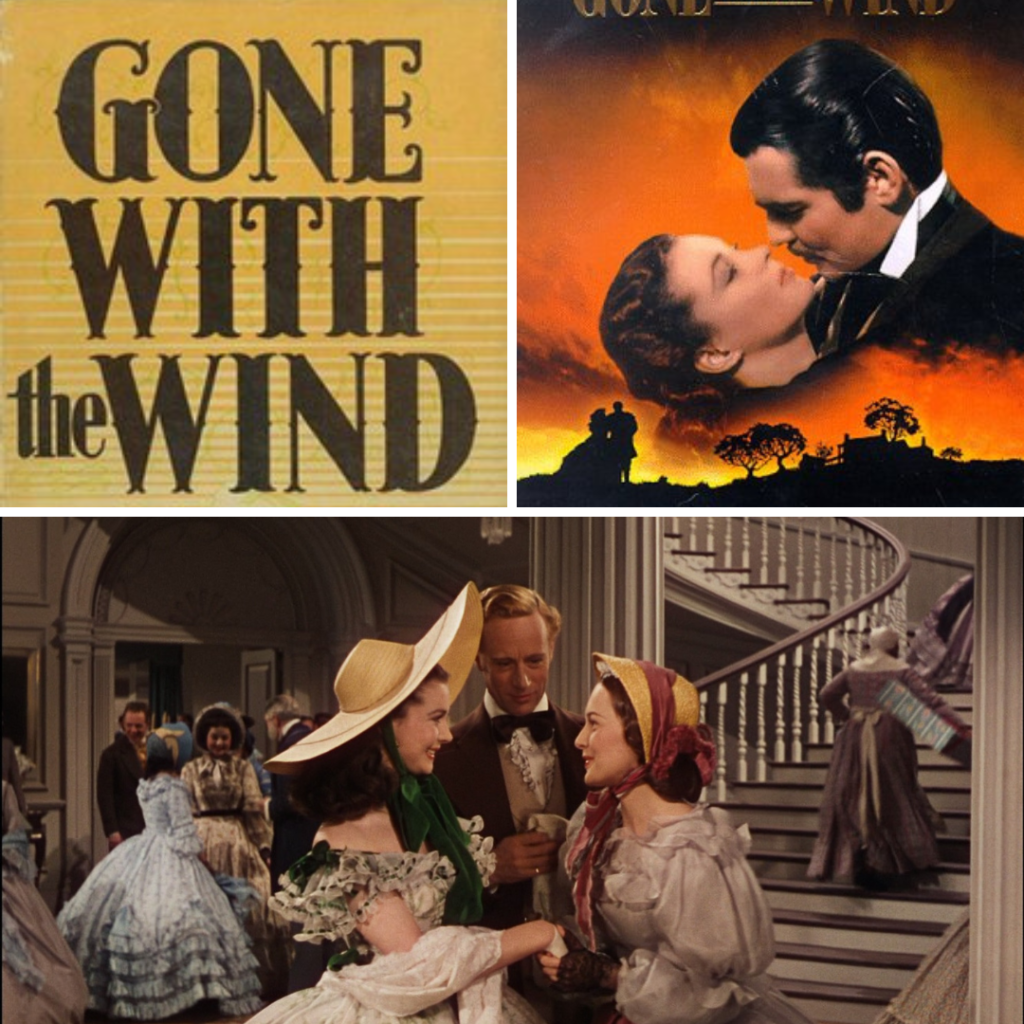
In Gone with the Wind, Scarlet O’Hara’s family had suffered downward mobility during the Civil War, but Scarlet refused to allow anyone to know how bad her financial situation was. In one scene, Scarlet’s gorgeous plantation had been destroyed, and Scarlet herself was starving. In a moment of desperation, she declared:
“I’m going to live through this and when it’s all over, I’ll never be hungry again. No, nor any of my folk. If I have to lie, steal, cheat or kill. As God is my witness, I’ll never be hungry again.”
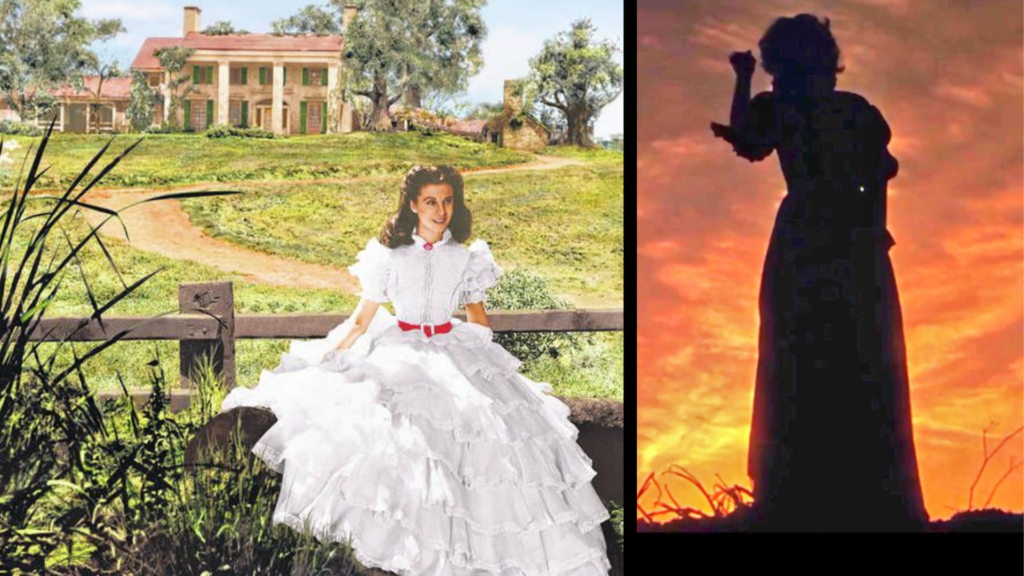
Gone with the Wind LinkLinks to an external site.
And Scarlet O’Hara did survive. But in doing so, she became less than an admirable Southern Belle. In my opinion, the title “Gone with the Wind” alludes to the fact that by the end of the Civil War, the Southern Myth was “Gone with the Wind.”
Faulkner often wrote about the Southern Myth, and he frequently focused on the hypocrisy that arose as many Southerners hid the fact that they were no longer a type of Southern Royalty.
Most of Faulkner’s books and stories take place in his fictional Yoknapatawpha County.
In “A Rose for Emily,” Miss Emily’s House is an important symbol. Like Scarlet O’Hara’s Tara, the Grierson’s home was not the house that it had been during better financial times.
The time of “A Rose for Emily” was set during the early 1900s, but several years before that time, Colonel Sartoris had hatched a plan to camouflage the fact that Emily’s father no longer had enough money to pay his taxes:
“Colonel Sartoris invented an involved tale to the effect that Miss Emily’s father had loaned money to the town, which the town, as a matter of business, preferred this way of repaying. Only a man of Colonel Sartoris’ generation and thought could have invented it, and only a woman could have believed it.
“When the next generation, with its more modern ideas, became mayors and aldermen, this arrangement created some little dissatisfaction. On the first of the year they mailed her a tax notice.”
In the above passage, Faulkner reveals that he is contrasting the Old South with the New South.
In terms of seasons as themes, the Old South is experiencing late autumn, and the New South is experiencing spring.
In my opinion, the Grierson home is symbolic both of Emily Grierson and the Old South.
Miss Emily is symbolic of the Old South.
In the same way that her house had fallen into disrepair, Miss Emily’s personal appearance had slipped, too:
“They rose when she entered–a small, fat woman in black, with a thin gold chain descending to her waist and vanishing into her belt, leaning on an ebony cane with a tarnished gold head. Her skeleton was small and spare; perhaps that was why what would have been merely plumpness in another was obesity in her. She looked bloated, like a body long submerged in motionless water, and of that pallid hue. Her eyes, lost in the fatty ridges of her face, looked like two small pieces of coal pressed into a lump of dough as they moved from one face to another while the visitors stated their errand.” Faulkner, A Rose for Emily
“…an ebony cane with a tarnished gold head….” Faulkner, A Rose for Emily
Ebony is black — alluding to the theme of darkness versus day.
Tarnish is discoloring caused by the air, after some medals have been exposed to it for a bit of time. Tarnish suggests the effect of Time.
“We’re Captive on the Carousel of Time” – Joni Mitchell, The Circle Game
Faulkner alludes to the cyclical nature of time by saying that every year, a tax notice was sent to Miss Emily.
At least twice Faulkner mentioned the routine going and coming of the man who worked for Emily Grierson:
“Daily, monthly, yearly we watched the Negro grow grayer and more stooped, going in and out with the market basket. Each December we sent her a tax notice, which would be returned by the post office a week later, unclaimed.
Faulkner also alludes to the ticking away of time:
“… they could hear the invisible watch ticking at the end of the gold chain.” Faulkner, A Rose for Emily
All of these repeated behaviors become cycles–or as Joni Mitchell said, “Circle Games.”
Shakespeare once observed that something was foul in Denmark:
“Something’s Rotten in the State of Denmark.” – Shakespeare
In Faulkner’s “A Rose for Emily,” Something’s Rotten in Jefferson, Mississippi, too.
At the time when Emily Grierson was alive, people would have used outhouses as their bathrooms. There is no way to flush an outhouse, and they smell bad. Lime is a white, powdery substance, and it was sprinkled down into the holes of an outhouse to help camouflage the odors in outhouses, but the stench never goes away completely. The stench around Emily Grierson and her house never go away either. In the story “A Rose for Emily,” it seems to be symbolic that the sneaking aldermen used lime to camouflage the odor that they associated with Miss Emily. It is as though Faulkner is suggesting that the Grierson family has become smelly, too. Later in the story, we’ll be led to believe that someone had died in Emily Grierson’s house. Certainly, the Grierson house had an odor, and again, Houses are often Symbols in Literature.
The lime was a way to camouflage the odor coming from the Grierson’s house. Camouflage is a type of hypocrisy–a type of hiding in plain sight. The odor about the Grierson’s house was a multifaceted thing. It was more than the mere stench of a rotting body. The Griersons themselves were rotting. No doubt, Emily Grierson is symbolic of the Southern Myth, which Faulkner believed had begun to rot.
The people in Jefferson “…believed that the Griersons held themselves a little too high for what they really were. None of the young men were quite good enough for Miss Emily and such.”
Like Rhett Butler in Gone with the Wind, Homer Barron, a Yankee, imposes himself upon the Southern town of Jefferson. Being a Yankee was especially offensive to pretentious Southerners, but Homer Barron was also little more than a day laborer. He had two strikes against him, and the people in Jefferson, Mississippi, thought that Homer Barron was not an appropriate suitor for Miss Emily. But Emily Grierson did not seem to care what the people in Jefferson thought about her. She seems to have been romantically involved with Homer Barron, in spite of what the neighbors thought:
“Presently we began to see him and Miss Emily on Sunday afternoons driving in the yellow-wheeled buggy and the matched team of bays from the livery stable.
“At first we were glad that Miss Emily would have an interest, because the ladies all said: ‘Of course, a Grierson would not think seriously of a Northerner, a day laborer.’ But there were still others, older people, who said that even grief could not cause a real lady to forget noblesse oblige….” Faulkner, A Rose for Emily
Define noblesse oblige –
Hypocrisy and Appearances in “A Rose for Emily”
In the first paragraph of the story “A Rose for Emily,” Faulkner shines a light on the hypocrisy in Jefferson, Mississippi:
“WHEN Miss Emily Grierson died, our whole town went to her funeral: the men through a sort of respectful affection for a fallen monument, the women mostly out of curiosity to see the inside of her house….” Faulkner, A Rose for Emily
Appearances Are Very Important In Maintaining the Southern Myth
The neighbors did not approve of Miss Emily’s relationship with Homer Barron, but they would not confront her directly. “The men did not want to interfere, but at last the ladies forced the Baptist minister–[Miss Emily’s people were Episcopal]– to call upon her.” This is another example of hypocrisy. It is double hypocrisy. Emily Grierson’s religious leader was not sent to call on her. The townspeople of Jefferson, most of whom were no doubt Baptist, thought it better to send their own minister to call on Emily Grierson. When the Baptist preacher failed, his wife picked up the campaign.
After a while, Homer Barron seemed to have disappeared. Miss Emily’s appearance faltered soon thereafter.
“When we next saw Miss Emily, she had grown fat and her hair was turning gray. During the next few years it grew grayer and grayer until it attained an even pepper-and-salt iron-gray, when it ceased turning. Up to the day of her death at seventy-four it was still that vigorous iron-gray, like the hair of an active man.” Faulkner, A Rose for Emily
Why did Faulkner name this short story “A Rose for Emily?”
To be honest, I am not sure why Faulkner named his short story “A Rose for Emily.” Scholars all around the world debate what the title of Faulkner’s story means.
In my opinion, however, Faulkner allows us a glimpse of the title’s meaning in the following words:
“When the Negro opened the blinds of one window, they could see that the leather was cracked; and when they sat down, a faint dust rose sluggishly about their thighs, spinning with slow motes in the single sun-ray. On a tarnished gilt easel before the fireplace stood a crayon portrait of Miss Emily’s father.”
In my opinion, the Rose for Emily is a Dust Rose.
In the above passage, Faulkner is alluding both to the effects of time and to the themes of Darkness versus Light in his story:
The windows in Emily Grierson’s home were covered by blinds. Typically, the blinds were shut, and Emily rarely looked outside. Because of those blinds, the house itself was dark and shadowy. But Emily’s ability to see out into the world was also obscured. By this, I am saying that Emily could not truly see, There was only a “….single sun-ray. On a tarnished gilt….”
“So the next night, after midnight, four men crossed Miss Emily’s lawn and slunk about the house like burglars ….”
In my opinion, Faulkner is saying that the people of Jefferson, Mississippi, lacked the light of understanding–they lacked enlightenment, and because of that, they could not truly see.
But Emily Grierson also lacked the light of understanding. She willingly lived in a dark house, and she rarely opened her blinds and looked outside.
We must learn to truly SEE and not merely look.
The last thing that I want to discuss is whether or not Emily Grierson was a prisoner in her own house.

Probably because I lived in Mississippi most of my life, when I first read “A Rose for Emily,” I imagined that there was an old iron fence around the Grierson house. Old Victorian houses enclosed within iron fences are common in Mississippi.

To help understand the nature of a fence, read A Fence by Carl Sandburg
A Fence
Carl Sandburg
Now the stone house on the lake front is finished and the
workmen are beginning the fence.
The palings are made of iron bars with steel points that
can stab the life out of any man who falls on them.
As a fence, it is a masterpiece, and will shut off the rabble
and all vagabonds and hungry men and all wandering
looking for a place to play.
Passing through the bars and over the steel points will go
nothing except Death and the Rain and Tomorrow.
Assignment Paper 1
Assignment Paper 1: Discuss ways that Faulkner used the themes of darkness versus light in “A Rose for Emily.” If you prefer, you can talk about how Faulkner harnessed the Circles of Life in his story. Either way that you elect to approach the story, also offer your opinion about whether or not Emily Grierson was trapped inside some type of fence. Explain. Consider Sandburg’s “A Fence” for this part of your response. You may also wish to offer your opinion about how and why Homer Barron disappeared. Last, you may want to discuss why Faulkner titled his story “A Rose for Emily.” You may arrange your points in any way you wish. The only topic that you must address is the darkness versus the light in the story. Remember that your essay will have one main topic, and each paragraph must support that main topic. Choose the topic of your paper from any of the preceding points. The paper must have at least 5 paragraphs, and each paragraph must support the main topic of the paper. Each paragraph will have a topic sentence, and each of the sentences thereafter must support the topic sentence of the paragraph.
I am only alerting you that this paper assignment is coming soon, but we are going to do a couple of things before you write that paper
Assignment: Outline the Story “A Rose for Emily”
The Comp II curriculum teaches that you should write an outline of your paper before you write that paper, and that is the logical, sequential way to approach your assignment, but I want to acknowledge to you that not everyone thinks or functions in a logical, sequential way. I don’t. If I were asked to simply write an outline for a paper–cold turkey–with no further preparation, I could not do that. I would need a process of discovery before I created an outline. I discover what my papers will become AS I write them. I approach writing more open-ended than some might, and I am giving you permission to do that, too–and to allow yourself to have a pre-writing step BEFORE you create your outline. I acknowledge that this adds an extra step to paper writing for you, but I will allow time and assignment space for that extra step, as I establish your paper assignments.
Assignment: In Your Own Words, Respond to this Question: How did Faulkner use darkness and lightness as symbols in his story “A Rose for Emily?” Write in a Stream of Consciousness.
What Is Writing in A Stream of Consciousness?
Writing is an open-ended time of discovery for me.
Some of you are logical, sequential thinkers, and the logical approach to writing will appeal more to you. But there are other types of thinkers who need to approach any writing assignment in a less structured and linear way. I simply want both times of writers to have an equal opportunity for success in my class.
Through writing in a stream of consciousness, an aspiring writer can connect to his intuition, and ultimately, a person’s intuition will do the heavy lifting for the creating portion of writing a paper or a story or a poem or whatever else.
What Is the Intuition and How Does It Work:
You Have 3 Important Assignments Due Before I See You Again on Monday.
1. Finish Your Outline of “A Rose for Emily
2. Stream of Consciousness Writing Assignment 1:
In a stream of consciousness, write a paragraph in response to the following question:
How did Faulkner use darkness and lightness as symbols in his story “A Rose for Emily?”
I will not check this paragraph for spelling, punctuation, etc. After you begin writing, I don’t want you to stop to correct yourself in any way. I don’t want you to stop at all. Just write freely.
Please observe the due date. I’ll deduct 10 points per day after the due date. If your paragraph is 5 days late, I’ll give you a zero.
3. Stream of Consciousness Writing Assignment 2:
In a stream of consciousness, write a paragraph in response to the following questions:
In the story “A Rose for Emily,” is Emily Grierson fenced in? If so, is she caged? If so, who caged her?
I will not check this paragraph for spelling, punctuation, etc. After you begin writing, I don’t want you to stop to correct yourself in any way. I don’t want you to stop at all. Just write freely.
Please observe the due date. I’ll deduct 10 points per day after the due date. If your paragraph is 5 days late, I’ll give you a zero.
Writing in a Stream of Consciousness is particularly good for anyone who is anxious about writing. It helps writers get over their fears of writing. It helps curb writer’s block. But in order for this to happen, it is important that you don’t stop writing to edit. Write First Edit Later.
Read the following post:
You’ll Edit your paragraphs later. Writing in a Stream of Consciousness is a No-Fault Zone. I won’t grade your grammar or spelling for your paragraphs written in a stream of consciousness.
So far, I have not graded anyone’s grammar, but that is coming. But Writing in a Stream of Consciousness is not about Grammar or Spelling.
Read Meyer & Miller pgs. 1486-1488.
VII. Class VII (Sept. 7)
My over-arching opinion, after grading your outlines for “A Rose for Emily” is that many of you had good starts–in terms of outlines–but you did not outline the entire story. For this outline assignment, I did not hold that against you. I did not say that it was necessary for you to outline the entire story, and I’ll assume responsibility for dropping the ball in that regard. However, after I read your paragraphs that were written in a stream of consciousness, I realized that many of you didn’t understand the story. If you had outlined the entire story, I might be more compassionate about your lack of understanding of the story. But, if you don’t
’
ASSIGNMENT Due Sunday September 11.
- Paper 1:Discuss ways that Faulkner used the themes of darkness versus light in “A Rose for Emily.” If you prefer, you can talk about how Faulkner harnessed the Circles of Life in his story. Either way that you elect to approach the story, also offer your opinion about whether or not Emily Grierson was trapped inside some type of fence. Explain. Consider Sandburg’s “A Fence” for this part of your response. You may also wish to offer your opinion about how and why Homer Barron disappeared. Last, you may want to discuss why Faulkner titled his story “A Rose for Emily.” You may arrange your points in any way you wish. The only topic that you must address is the darkness versus the light in the story. Remember that your essay will have one main topic, and each paragraph must support that main topic. Choose the topic of your paper from any of the preceding points. The paper must have at least 5 paragraphs, and each paragraph must support the main topic of the paper. Each paragraph will have a topic sentence, and each of the sentences thereafter must support the topic sentence of the paragraph.
Choosing a Topic Read Meyer and Miller pages 1485-86.
2. Your Second Assignment for today is to: Write a thesis statement that clearly states what position you will develop in your paper.
Your Thesis Statement for Your Paper Is Not the Same Thing as A Topic Sentence for a Paragraph, but It Is Similar.
Your Thesis Statement for Your Paper Will State What Your Main Objective Is in Writing Your Story
There will be at least 5 paragraphs in your paper, and each paragraph should somehow support your thesis statement.
Each paragraph will have a Topic Sentence, and each sentence in that paragraph will support the Topic Sentence of that Paragraph.
How to Write A Thesis Statement (Links to an external site.)
https://www.youtube.com/watch?v=DFp1uGTXo4Q (Links to an external site.)
3. Write an outline for your paper.
Watch the following video:
How to Write an Outline for an Essay (Links to an external site.)
https://www.youtube.com/watch?v=hwzfnDbZCRQ (Links to an external site
VIII. Class VIII (Sept. 12)
Assignment for Paper I
- Paper 1:Discuss ways that Faulkner used the themes of darkness versus light in “A Rose for Emily.” If you prefer, you can talk about how Faulkner harnessed the Circles of Life in his story. Either way that you elect to approach the story, also offer your opinion about whether or not Emily Grierson was trapped inside some type of fence. Explain. Consider Sandburg’s “A Fence” for this part of your response. You may also wish to offer your opinion about how and why Homer Barron disappeared. Last, you may want to discuss why Faulkner titled his story “A Rose for Emily.” You may arrange your points in any way you wish. The only topic that you must address is the darkness versus the light in the story. Remember that your essay will have one main topic, and each paragraph must support that main topic. Choose the topic of your paper from any of the preceding points. The paper must have at least 5 paragraphs, and each paragraph must support the main topic of the paper. Each paragraph will have a topic sentence, and each of the sentences thereafter must support the topic sentence of the paragraph.
- The First Draft of Your Paper Is Due Tuesday, September 13, at Midnight. No Late Papers Will Be Accepted.
- Do not begin writing the final draft of your paper until I grade your first draft.
- The Final Draft of Your Paper Is Due on Sunday, September 18, at Midnight. No Late Papers Will Be Accepted.
Please Note That the Title of Your Paper Will Not be A Rose for Emily.
The Title of Your Paper Will Be A Short Phrase that States the Topic of Your Entire Paper.
Every Paragraph in Your Paper Should Somehow Support that Title, Which Is the Topic of Your Paper
Each Sentence in a Paragraph Should Support the Topic of the Paragraph, Which Supports the Topic or Title of the Paper
There should be 5 paragraphs, and each paragraph should have 5 sentences.
You will write the first draft of your paper, and that should be submitted by tomorrow night.
Do not begin your final draft until I grade your first draft.
You must make the changes that I noted in your first draft in your final draft.
How to Write An Essay – Steps
In the following video, our Youtube coach says that there are 3 Steps for Preparing to Write an Essay. If your essay happens to be an analysis of a piece of literature, however, the first step–before anything else–is to READthe piece of literature–READ IT Thoroughly–Several Times, and Make Notations As You Read.
Early into the process of studying “A Rose for Emily,” I realized that many of my students had not thoroughly read the story. I hope that all of you have learned that will never work in literary analysis.
I’d add that the second step is that of exploring various ideas about the topic via writings in a stream of consciousness.
1. Read the Piece
2. Explore Ideas about the Piece via writings in a stream of consciousness
3. Select A Topic for Your Paper
4. Create an Outline for Your Paper
5. Write Your First Draft – Here’s a Brutal Reality: You will need to rewrite your paper more than one time. I do tons of rewrites for my own books and other projects. =
6. Rewrite Your First Draft so that you have a POWERFUL CONCLUSION
7. Further Rewrite Your First Draft so that you have a POWERFUL INTRODUCTION – You read that correctly–you write the introduction last.
How to Write An Essay Overview: (Links to an external site.)
https://www.youtube.com/watch?v=UuOWNNvupik (Links to an external site.)
How to Write A Conclusion
https://www.youtube.com/watch?v=2UElC_YZ0Eo&t=100sLinks to an external site.
How to Write An Introduction
https://www.youtube.com/watch?v=msaynBwwxkA&t=10sLinks to an external site.
Work Cited
[See An Example in Your Textbook on pp. 22. If you are quoting from more than one source, you will call that section Works Cited.
https://www.youtube.com/watch?v=sgzscjjMHKMLinks to an external site.
Because it is difficult to create a bibliographical reference for a story that is inside a collection of stories, I have created the proper Work Cited entry for Faulkner’s entire story “A Rose for Emily.”
Faulkner, William. “A Rose for Emilly.” The Compact Bedford Introduction to Literature, edited by Michael Meyer and D. Quentin Miller, 12th ed., Bedford/St. Martin’s, 2020, pp. 40-46.
MLA Format: [Modern Language Association]
“Oftentimes a source is contained in a larger publication, which the MLA calls the container. If there is a container, its title and a comma follow the source’s name. The container could be a journal, a newspaper, a book (with short stories), a webpage, or other source.” https://www.redlandsusd.net/site/handlers/filedownload.ashx?moduleinstanceid=5439&dataid=15422&FileName=MLA%20Works%20Cited%20and%20Parenthetical%20Citation%20Samples.pdfLinks to an external site.
Be Sure That You Use Quotation Marks Correctly!
In-Text Quotation:
If the Quote is On One Page of Your Text:
“It was a big, squarish frame house that had once been white, decorated with cupolas and spires and scrolled balconies in the heavily lightsome style of the seventies, set on what had once been our most select street.”
Faulkner, William. “A Rose for Emily.” Meyer and Miller. 40.
If the Quote is On Two or More Pages of Your Text:
“Colonel Sartoris invented an involved tale to the effect that Miss Emily’s father had loaned money to the town…”
[Note that I did not quote the entire sentence, and the three periods form an ellipse, which indicates that words have been left out of the quote.]
[If you look at your textbook, you will see that these words appear partly on page 40 and also on page 41. in that case, you will indicate both pages in your in-text citation.]
Faulkner, William. “A Rose for Emily.” Meyer and Miller. 40-41.
My paper might read something like this:
William Faulkner’s Story “A Rose for Emily” exposes an element of hypocrisy. Rather than admit that he no longer was wealthy, Mr. Grierson became part of the falsehood that he did not owe the city any money at all: “Colonel Sartoris invented an involved tale to the effect that Miss Emily’s father had loaned money to the town…” “Faulkner, William. “A Rose for Emily.” Meyer and Miller. 40-41.
My paper would continue to talk about elements of the Southern Myth or about how the Griersons were hypocrites, and at the end of the paper, I would add a Work Cited Reference as follows;
Add A Work or Works Cited Section at the End of Your Paper
Work Cited
Faulkner, William. “A Rose for Emilly.” The Compact Bedford Introduction to Literature, edited by Michael Meyer and D. Quentin Miller, 12th ed., Bedford/St. Martin’s, 2020, pp. 40-46.
If I had used several references in writing my paper, I would also add the other references in this same spot.
IX. Class IX (Sept. 14)
Write an Essay that explains your feelings about the word “Home.”
Home is a Driving Force for Every Art Form
In many cases, the artists, especially writers and songwriters, describe and/or idealize one specific home from their memory, but most often, the home that artists seek is something internal–an idyllic place that most people never truly reach.
“I am homesick for a place I am not sure even exists–One where my heart is full, my body loved, and my soul understood.” – Anonymous
Have you ever awakened with a vague aching that seems to come from within yourself–from deep inside your heart? I have, and I believe it is the pain that some might say could be attributed to a hole in one’s heart. On those occasions, I am not sure what is missing, and I am not sure why I ache. The feeling seems like a kind of fear, but I cannot identify a specific thing that frightens me. In one sense, several things might be out of place in my life, but I have had this feeling periodically across several periods of my lifetime. In fact, this feeling has revisited me often since my childhood. Many other writers have the same haunting feeling, and that is why the theme of darkness versus light plays prominently in a great deal of literature.
Something about A Home is also often an important part of stories, songs, and books. Invariably, writers feel that if they can simply find that “home,” the vague feeling of homesickness will go away.
As I have said many times before, I believe that some song lyrics are literature. Here is a song about Home that Wynona Judd wrote:
https://www.youtube.com/watch?v=B2H59ld07Dw (Links to an external site.)
Flies On The Butter (You Can’t Go Home Again)
Wynona Judd
Old tin roof, leaves in the gutter
A hole in the screen door big as your fist
And flies on the butter
Mama baking sugar cookies, we were watching cartoons
I heard her holler from the kitchen
“Which one of you youngen’s wants to lick the spoon?”
Yellow jackets on the watermelon, honeysuckle in the air
Daddy turning on the sprinkler
Us kids running through it in our underwear
Old dog napping on the front porch, his ear just a twitching
Fell asleep on granddaddy’s lap
To the sound of his pocket watch ticking
Oh, oh, it doesn’t seem like it was all that long ago
Oh, oh, you can dream about it every now and then
But you can’t go home again
Me and my best friend Jenny set up a backyard camp
Stole one of mama’s mason jars
Poked holes in the lid and made a firefly lamp
Me and Billy Monroe, sneaking down by the river
I’m still haunted by the taste of the kiss
I was too scared to give him
Oh, oh, it doesn’t seem like it was all that long ago
Oh, oh, you can dream about it every now and then
But you can’t go home again
There’s a blacktop road, a faded yellow centerline
It can take you back to the place
But it can’t take you back in time
Oh, oh, it doesn’t seem like it was all that long ago
Oh, oh, you can dream about it every now and then
But you can’t go home again
Old tin roof, leaves in the gutter
A hole in the screen door big as your fist
And flies on the butter
Wynona’s song lyrics are a poetic type of memoir writing.
The Judds Biography
https://www.youtube.com/watch?v=VN8CUPJpMIwLinks to an external site.
A memoir is an autobiography. It is something that a person writes about himself or herself, and it is based on his or her own memories.
Some of you already have memories that you should write about.
Wynona’s song lyrics in “Flies on the Butter” aren’t even full sentences. That’s ok. A lot of poetry is not written in full sentences. Wynona has just tossed out a series of sentence fragments–a series of phrases–and juxtaposed them together, but we, the reader or the listener can put those phrases together and understand what Wynona is talking about. We can understand the story that Wynona is telling us.
“Old tin roof, leaves in the gutter
A hole in the screen door big as your fist
And flies on the butter”
With her words, Wynona has painted the picture of an old country house that has no air conditioner. To keep from burning up, the doors and windows are left open, but the screen on the door has a hole. Therefore, the flies have gotten into the house.
Wynona must be singing about a late summer or an early autumn memory. The leaves have begun to fall, and the fallen leaves have landed in the gutter. Here are some more words that paint pictures of things that most of us have seen in our own lives:
“Yellowjackets on the watermelon, honeysuckle in the air….
“Old dog napping on the front porch, his ear just a twitching….
“Stole one of mama’s mason jars
Poked holes in the lid and made a firefly lamp….
“Oh, oh, it doesn’t seem like it was all that long ago
Oh, oh, you can dream about it every now and then
But you can’t go home again
There’s a blacktop road, a faded yellow centerline
It can take you back to the place
But it can’t take you back in time.” Judd, “Flies on the Butter”
You can do just about anything that you want to do in your journal. Your journal is YOUR journal. I want you to write some full paragraphs in your journal, and I’ll check for those from time to time. But I also want you to feel free to jot down a word or two words that come to you, whenever–words that are meaningful in some way to you.
Journal Assignment 1 for Monday, September 19: Start a page in your journal, and place the following words at the top of that page:
Thoughts of Home
Below that title, start adding words or phrases that remind you of your home.
You must have written at least 5 entries by Monday.
This is how I might begin my Home page for Monday, September 19;
Thoughts of Home:
Cotton Patches
Cotton Lint Flying in the Air
The Ben Franklin Dime Store
The Corner Grocery Store
The Book Mobile
Camp
Campfires
Swimming in the Lake
The Weeping Willow in My Backyard
Although I have lived in some large metropolitan areas, I grew up in a rural, country area, and I never want to forget my rural heritage. It is who I am. What are the things that define you?
https://jackikellum.com/the-tuck-family-home-in-tuck-everlasting/Links to an external site.
https://jackikellum.com/house-in-the-woods-a-picture-book-by-inga-moore/Links to an external site.
Right now, I want to caution you to NOT write a bunch of rosy stuff that you wish had been you. Be honest. Dig deep inside and pull out some words that are unique to you and your home.
Carly Simon was the daughter of Richard Simon, who was the co-founder of the Publishing conglomerate Simon & Schuster. She was a wealthy girl who sang during the 1970s, and she married the folk singer James Taylor, but I don’t believe their marriage was ever a happy marriage.
I’m going to play a song that paints a real picture of Carly Simon’s memory of home. It is not a rosy, fake, and flashy place that anyone would want to be, but I suspect that it is an accurate description of why Carly Simon got married and the Home that was buried somewhere in her heart:
Although some lyrics read well on paper, the following song lyrics read best when Caroly sings them. She knows where to insert the poignant pauses.
That’s the Way I’ve Always Heard It Should Be
https://www.youtube.com/watch?v=Ux7HgO9QhAcLinks to an external site.
That’s The Way I Always Heard It Should Be
Music by: Carly Simon
Lyrics by: Jacob Brackman
My father sits at night with no lights on
His cigarette glows in the dark
The living room is still
I walk by, no remark
I tiptoe past the master bedroom where
My mother reads her magazines
I hear her call sweet dreams
But I forgot how to dream
But you say it’s time we moved in together
And raised a family of our own, you and me
Well, that’s the way I’ve always heard it should be
You want to marry me, we’ll marry
My friends from college they’re all married now
They have their houses and their lawns
They have their silent noons
Tearful nights, angry dawns
Their children hate them for the things they’re not
They hate themselves for what they are
And yet they drink, they laugh
Close the wound, hide the scar
But you say it’s time we moved in together
And raised a family of our own, you and me
Well, that’s the way I’ve always heard it should be
You want to marry me, we’ll marry
You say we can keep our love alive
Babe, all I know is what I see
The couples cling and claw
And drown in love’s debris
You say we’ll soar like two birds through the clouds
But soon you’ll cage me on your shelf
I’ll never learn to be just me first
By myself
Well O.K., it’s time we moved in together
And raised a family of our own, you and me
Well, that’s the way I’ve always heard it should be,
You want to marry me, we’ll marry
We’ll marry
© 1970 Quackenbush Music Ltd. / Kensho Music, ASCAP
Coming Around Again/Itsy Bitsy Spider
https://www.youtube.com/watch?v=-J_9kYdRFCMLinks to an external site.
How Writing Memoir Helps Stip the Pain from Memory
In a conversation with Paul Bloom, a professor from Yale, Robin Wright begins to explore the fact that we tend to view things either positively or negatively. Through mindfulness, we begin to neutralize some of our reactions by forcing ourselves into awareness of things that we might not otherwise notice.
He adds that when we force ourselves to be aware of things that are negative to us, we begin to strip them of their power.
“The past is never dead. It’s not even past.” – William Faulkner
Many of us work very hard, trying to forget parts of our pasts, but as Faulkner pointed out, we are never able to actually accomplish that. When we try to repress our pasts, we simply become numb. We enter states of denial, and we essentially begin to glaze over. Writers cannot write authentically when they are numb, and the sooner that they force themselves to be aware of all the parts of themselves, the sooner that they can rise above their numbness and lack of authenticity. Mindfulness is a tenet of Buddhism, but many non-Buddhists practice it through meditation.
I don’t even pretend to understand Buddhism. I am not a Buddhist, but I do believe that Mindfulness can have a positive effect on anyone’s life. Both writing and painting are ways that we become more mindful.
The Need of Being Versed in Country Things
Robert Frost – 1874-1964
The house had gone to bring again
To the midnight sky a sunset glow.
Now the chimney was all of the house that stood,
Like a pistil after the petals go.
The barn opposed across the way,
That would have joined the house in flame
Had it been the will of the wind, was left
To bear forsaken the place’s name.
No more it opened with all one end
For teams that came by the stony road
To drum on the floor with scurrying hoofs
And brush the mow with the summer load.
The birds that came to it through the air
At broken windows flew out and in,
Their murmur more like the sigh we sigh
From too much dwelling on what has been.
Yet for them the lilac renewed its leaf,
And the aged elm, though touched with fire;
And the dry pump flung up an awkward arm;
And the fence post carried a strand of wire.
For them there was really nothing sad.
But though they rejoiced in the nest they kept,
One had to be versed in country things
Not to believe the phoebes wept.
[note: a phoebe is a bird]
Considerations for Critical Thinking and Writing from Meyer & Miller, The Compact Bedford Introduction to Literature, pg. 769.
- FIRST RESPONSE. What kinds of moods are produced in the speaker by the house and the birds?”The birds that came to it through the air
At broken windows flew out and in,
Their murmur more like the sigh we sigh
From too much dwelling on what has been.”“But though they rejoiced in the nest they kept,One had to be versed in country things
Not to believe the phoebes wept.”[note: a phoebe is a bird]”The house had gone to bring again
To the midnight sky a sunset glow.
Now the chimney was all of the house that stood,
Like a pistil after the petals go.z{Im adding this question: why does the speaker mention sunset — the setting of the sun?]

“Now the chimney was all of the house that stood,
Like a pistil after the petals go.”
- Do you think this poem is sentimental? Why or Why not?
- What is the setting of this poem?
Figures of Speech
When the speaker says that the pump has raised its arm, he has used personification. When he says that the fence has carried wire, he is also using personification, suggesting that the fence has arms.
And the dry pump flung up an awkward arm;
And the fence post carried a strand of wire.
U2 – I Still Haven’t Found What I’m Looking For
Lyrics
I have climbed highest mountains
I have run through the fields
Only to be with you
Only to be with you
I have run
I have crawled
I have scaled these city walls
These city walls
Only to be with you
But I still haven’t found what I’m looking for
But I still haven’t found what I’m looking for
I have kissed honey lips
Felt the healing in her fingertips
It burned like fire
This burning desire
I have spoke with the tongue of angels
I have held the hand of a devil
It was warm in the night
I was cold as a stone
But I still haven’t found what I’m looking for
But I still haven’t found what I’m looking for
I believe in the kingdom come
Then all the colors will bleed into one
Bleed into one
But yes I’m still running
You broke the bonds
And you loosed the chains
Carried the cross
Of my shame
Oh my shame
You know I believe it
But I still haven’t found what I’m looking for
But I still haven’t found what I’m looking for
But I still haven’t found what I’m looking for
But I still haven’t found what I’m looking for
Adam Clayton / Paul David Hewson / Laurence Mullen/ David Evans
I Still Haven’t Found What I’m Looking For lyrics © Polygram Int. Music Publishing B.v.
Some Songs Are Poetry: [Not Nearly All]. I am not talking about whether those songs rhyme or not. What I am saying is that some songs, with very few words, are able to express a vast reservoir of emotion. Like poetry, good songs have rhythm–they have a beat. But beyond the capacity of most poems, songs have music. I agree with the composer David Foster: “Music has the ability to change the world.
In the following version of the same song, notice how the Harlem Choir gradually responds to the music of the above song, until they finally were moved out of their seats:
U2 – I Still Haven’t Found What I’m Looking For [with Harlem Choir]
https://www.youtube.com/watch?v=M8Wt3dhF4fULinks to an external site.
The Romantic poet William Wordsworth said that poetry is “a spontaneous overflow of emotion.”
In the above video, you witnessed a true “spontaneous overflow of emotion.”
My job at Northark this semester is to teach you to write academically about literature, but in my opinion, you will be hobbled in your efforts to write about literature if you cannot experience it deeply.
From that experience, some of you will be motivated to create your own literature–and by that, I include song lyrics as literature.
At the beginning of this post, I said that most people are homesick for “something.” I don’t have a magic bullet to cure that existential yearning, but I have good news: While Getting Back Home Is Desirable, It Is the Journey Toward Home That Has the Power to Heal.
David Foster about the song “The Prayer.”
“Music is so powerful that I believe it can bring down the wall.” – David Foster
In my opinion, a great place to begin to journey into yourself is by trying to establish the “home” that has been most meaningful in your own life. It won’t help or be meaningful, however, to try to create a myth–or a home that never existed. I believe that, even if it is painful, the most powerful writing is that which paints a more honest picture.

Read The Mending Wall by Robert Frost from Meyer & Miller, The Compact Introduction to Literature.
- Read Robert Frost’s “Birches” Meyer and Miller, pages 764– 765.
X. Class X (Sept. 19)
Memoir Mondays
Today Is the First Memoir Monday of the Rest of Your Lives
Last Wednesday night, I recalled one of my favorite quotes about writing a memoir [it speaks volumes about my own life]:
Quote:
“It should surprise no one that the life of the writer–such as it is–is colorless to the point of sensory deprivation. Many writers do little else but sit in small rooms recalling the real world. This explains why so many books describe the author’s childhood. A writer’s childhood may well have been the occasion of his only firsthand experience.”
― Annie Dillard, The Writing Life [On Memoir]
Here Is Your Memoir Monday Assignment for Today
Create A Map of Your Neighborhood and Enter It Into Your Journal
Part B of this Assignment:
List the spots on your map that were particularly important to you, when you were a child.
https://jackikellum.com/memoir-mondays-draw-a-map-of-the-area-around-your-home/]Links to an external site.
Also, Do the Following:
https://jackikellum.com/lets-write-a-few-words-about-our-childhood-homes/]Links to an external site.
Your Assignment for Today Was to Start a List of Words and Phrases That Describe or Signify Your Childhood Home.
Keep this List Open. You Will Continually Remember More Things to Add to the List.
I have listed 33 things that will become 33 separate writing prompts for my journal.
Your list should be growing, too.
For Today’s Home Prompt, Pick One Item from Your List and Write at Least 1 Paragraph about It. This is Due Monday, September 26. You May Also Illustrate Your Paragraph.
I will only check for your journal entries on Mondays, but I’ll check to see that you have your journal with you on Wednesdays, too. If you do have your journals with you for each class meeting, you will receive 10 points.
When I check your journals on Mondays, I’ll give you extra points for every journal assignment that you complete.
Every Monday, I’ll also offer em on Your List and Write about It,you some optional writing prompts. It is not necessary for you to write about any of the optional prompts, but if you do write at least one paragraph about an optional prompt, I’ll give you a bonus of up to 5 points per prompt.
Note: If you do not pass the class otherwise, the bonus points will not save you. You must still do your other class assignments. The bonus points will be added to the averages of people who are otherwise passing the class.
The Following are some prompts that you might write about this week, September 18-24.
You can also write about the Following About-Me Prompts, too. Each one of the following paragraphs will be 10 extra points.
Paper 1 is OVER! I have not graded any of the final papers, but I am sure that some of you did your very best, but others — eh! I suspect that some of your papers will be in the philosophical camp of Mediocrates.
Define Mediocre – “of moderate or low quality, value, ability, or performance: ORDINARY, SO-SO.” Merriam-Webster Dictionary
Before we move one day further, let’s pledge to give this class our very best! I want to give A’s to everyone.
Many of your papers were rife with Grammatical errors. I have started some pages that address some of the issues that I have found. After I discuss each page, I’ll deduct double points, if you continue to make the same mistakes
https://northark.instructure.com/courses/9662/pages/grammar-rules-for-academic-writing
Preposition Problems
https://northark.instructure.com/courses/9662/pages/grammar-rule-for-prepositions
The Rule for Prepositions Is That You Should Not Position A Preposition at the End of A Sentence, Phrase, or Clause.
Like Most Rules, There Are Exceptions but Try to Rearrange Your Sentences So That You Have No Dangling Prepositions. But don’t take this rule too far:
“This is the type of errant pedantry up with which I will not put.”
– Winston Churchill – Former Prime Minister of England
What Are Prepositions?
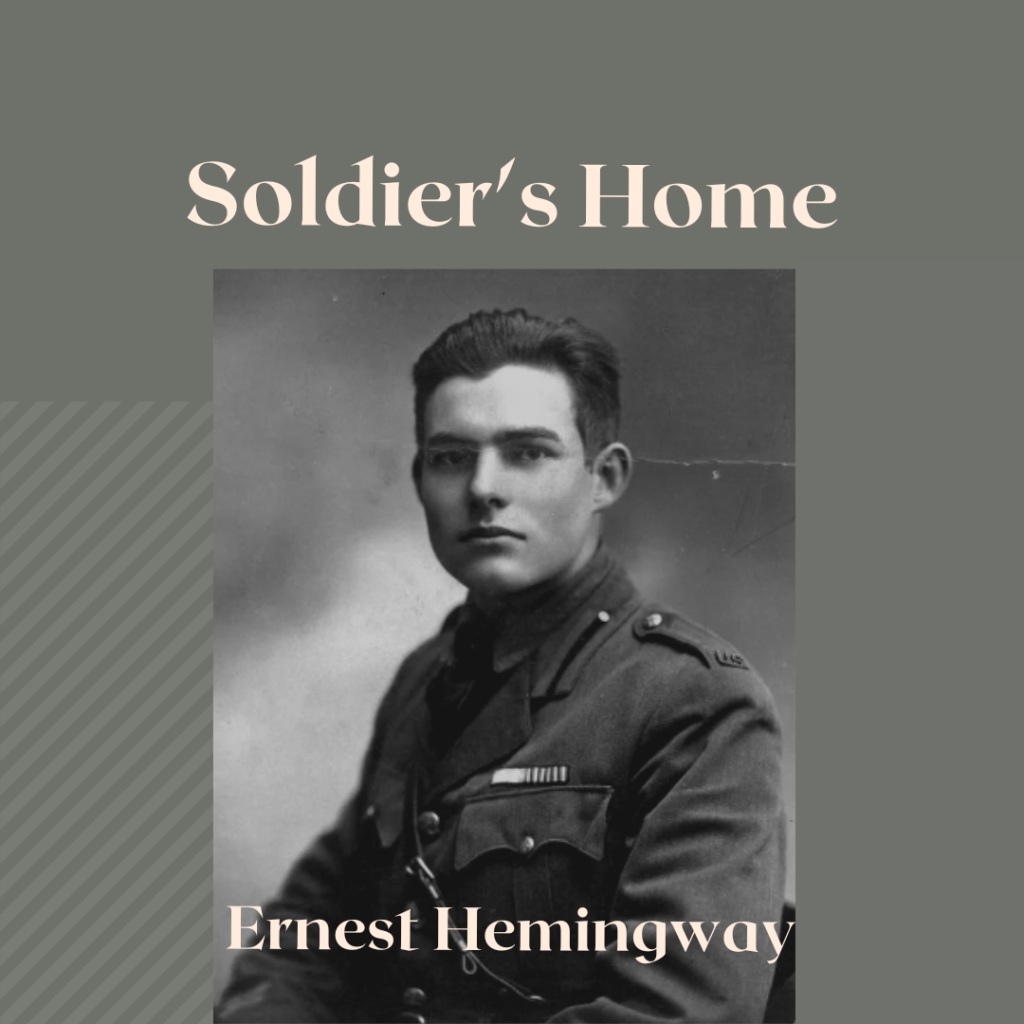
Read About Setting, about Ernest Hemingway, Soldier’s Home by Ernest Hemingway, and what Every Writer Needs. Meyer & Miller pp. 107-115.
OUTLINE THE FOLLOWING PARAGRAPHS FROM “SOLDIER’S STORY.”
Write in Full Sentences. If you use a quote, you must internally cite that quote immediately at the end of the quote. At the end of the outline, Add Work Cited:
Work Cited
Hemingway, Ernest. “Soldier’s Home.” The Compact Bedford Introduction to Literature, edited by Michael Meyer and D. Quentin Miller, 12th ed., Bedford/St. Martin’s, 2020, pp. 110-114.
At the top of the page, title your outline as follows:
An Outline of “Soldier’s Story” by Ernest Hemingway
1. “Krebs went to the war from a Methodist college in Kansas. There is a picture which shows him among his fraternity brothers, all of them wearing exactly the same height and style collar. He enlisted in the Marines in 1917 and did not return to the United States until the second division returned from the Rhine in the summer of 1919.”
I.
A.
B.
2. “By the time Krebs returned to his home town in Oklahoma the greeting of heroes was over. He came back much too late. The men from the town who had been drafted had all been welcomed elaborately on their return. There had been a great deal of hysteria. Now the reaction had set in. People seemed to think it was rather ridiculous for Krebs to be getting back so late, years after the war was over.”
II.
A.
B.
3. “At first Krebs…did not want to talk about the war at all. Later he felt the need to talk but no one wanted to hear about it. His town had heard too many atrocity stories to be thrilled by actualities. Krebs found that to be listened to at all he had to lie and after he had done this twice he, too, had a reaction against the war and against talking about it. A distaste for everything that had happened to him in the war set in because of the lies he had told. All of the times that had been able to make him feel cool and clear inside himself when he thought of them; the times so long back when he had done the one thing, the only thing for a man to do, easily and naturally, when he might have done something else, now lost their
cool, valuable quality and then were lost themselves.”
III.
A.
B.
4. “His lies were quite unimportant lies and consisted in attributing to himself things other men had seen, done or heard of, and stating as facts certain apocryphal incidents familiar to all soldiers. Even his lies were not sensational at the pool room. His acquaintances, who had heard detailed accounts of German women found chained to machine guns…were not thrilled by his stories.”
IV.
A.
B.
5. “During this time, it was late summer, he was sleeping late in bed, getting up to walk down town to the library to get a book, eating lunch at home, reading on the front porch until he became bored and then walking down through the town to spend the hottest hours of the day in the cool dark of the pool room. He loved to play pool.”
V.
A.
B.
6. “In the evening he practiced on his clarinet, strolled down town, read and went to bed. He was still a hero to his two young sisters. His mother would have given him breakfast in bed if he had wanted it. She often came in when he was in bed and asked him to tell her about the war, but her attention always wandered. His father was non-committal.”
VI.
A.
B.
7. “Before Krebs went away to the war he had never been allowed to drive the family motor car. His father was in the real estate business and always wanted the car to be at his command when he required it to take clients out into the country to show them a piece of farm property. The car always stood outside the First National Bank building where his father had an office on the second floor. Now, after the war, it was still the same car.”
VII.
A.
B.
8. “Nothing was changed in the town except that the young girls had grown up. But they lived in such a complicated world of already defined alliances and shifting feuds that Krebs did not feel the energy or the courage to break into it. He liked to look at them, though. There were so many good-looking young girls. Most of them had their hair cut short. When he went away only little girls wore their hair like that or girls that were fast. They all wore sweaters and shirt waists with round Dutch collars. It was a pattern. He liked to look at them from the front porch as they walked on the other side of the street. He liked to watch them walking under
the shade of the trees. He liked the round Dutch collars above their sweaters. He liked their silk stockings and flat shoes. He liked their bobbed hair and the way they walked.”
VIII.
A.
B.
9. “He did not want any consequences. He did not want any consequences ever again. He wanted to live along without consequences. Besides he did not really need a girl. The army had taught him that. It was all right to pose as though you had to have a girl. Nearly everybody did that. But it wasn’t true. You did not need a girl. That was the funny thing. First a fellow boasted how girls mean nothing to him, that he never thought of them, that they could not touch him. Then a fellow boasted that he could not get along without girls, that he had to have them all the time, that he could not go to sleep without them.”
IX.
A.
B.
10. “Now he would have liked a girl if she had come to him and not wanted to talk. But here at home it was all too complicated. He knew he could never get through it all again. It was not worth the trouble. That was the thing about French girls and German girls. There was not all this talking. You couldn’t talk much and you did not need to talk. It was simple and you were friends. He thought about France and then he began to think about Germany. On the whole he had liked Germany better. He did not want to leave Germany. He did not want to come home. Still, he had come home. He sat on the front porch.”
X.
A.
B.
11. “He sat there on the porch reading a book on the war. It was a history and he was reading about all the engagements he had been in. It was the most interesting reading he had ever done. He wished there were more maps. He looked forward with a good feeling to reading all the really good histories when they would come out with good detail maps. Now he was really learning about the war. He had been a good soldier. That made a difference.”
XI.
A.
B.
12. “Krebs looked at her. He liked her. She was his best sister. ‘Have you got the paper?’ he asked.
She handed him The Kansas City Star and he shucked off its brown wrapper and opened it to the sporting page. He folded The Star open and propped it against the water pitcher with his cereal dish to steady it, so he could read while he ate.
‘Harold,’ his mother stood in the kitchen doorway, ‘Harold, please don’t muss up the paper. Your father can’t read his Star if its been mussed.’”
XII.
A.
B.
13. “‘I’ve worried about you too much, Harold,’ his mother went on. ‘I know the temptations you must have been exposed to. I know how weak men are. I know what your own dear grandfather, my own father, told us about the Civil War and I have prayed for you. I pray for you all day long, Harold.’
Krebs looked at the bacon fat hardening on his plate.”
XIII.
A.
B.
14. “‘Your father is worried, too,” his mother went on. “He thinks you have lost your ambition, that you haven’t got a definite aim in life. Charley Simmons, who is just your age, has a good job and is going to be married. The boys are all settling down; they’re all determined to get somewhere; you can see that boys like Charley Simmons are on their way to being really a credit to the community.’
Krebs said nothing.”
XIV.
A.
B.
15. “So his mother prayed for him and then they stood up and Krebs kissed his mother and went out of the house. He had tried so to keep his life from being complicated. Still, none of it had touched him. He had felt sorry for his mother and she had made him lie. He would go to Kansas City and get a job and she would feel all right about it. There would be one more scene maybe before he got away. He would not go down to his father’s office. He would miss that one. He
wanted his life to go smoothly. It had just gotten going that way. Well, that was all over now, anyway. He would go over to the schoolyard and watch Helen play indoor baseball.”
XV.
A.
B.
Work Cited
Hemingway, Ernest. “Soldier’s Home.” The Compact Bedford Introduction to Literature, edited by Michael Meyer and D. Quentin Miller, 12th ed., Bedford/St. Martin’s, 2020, pp. 110-114.
XI. Class X (Sept. 21)
Grammar Problems
Possessive Case of Krebs
Krebs is a Noun. Krebs is the last name of a guy named Harold Krebs.
The pronound for Harold Krebs would be he.
The possessive case of he is his. [no apostrophe- you do not use apostrophes with pronouns.]
The possessive case of Krebs is either Krebs’ or Krebs’s.
Almost everyone failed to show the possessive case of Krebs. It is tricky to show the possessive case of words that end in “s.”
You can choose either of the following forms to show possession of the name Krebs:
Krebs’
Krebs’s
When you talk about Krebs’s mother, you could either write Krebs’ mother or Krebs’s mother.
The same would be true about punctuating Krebs’s nightmare.
Krebs’s worst nightmare had not yet begun.
Krebs’ worst nightmare had not yet begun.
News Flash: Objects also show possession.
The wall’s stones had fallen to the ground.
https://northark.instructure.com/courses/9662/pages/grammar-rules-about-the-possessive-case
Comma after Introductory Word, Phrase, or Clause
https://northark.instructure.com/courses/9662/pages/grammar-rules-about-the-possessive-case
Academic Language
Do not use contractions in your assignments.
Do not use slang expressions like “hang out,” “hook up,” “get with,” etc. Find a more traditional way to say things.
Let’s Discuss Robert Frost’s “Mending Wall” Meyer and Miller, pages 763– 764.
Something there is that doesn’t love a wall,
That sends the frozen-ground-swell under it,
And spills the upper boulders in the sun;
And makes gaps even two can pass abreast.
The work of hunters is another thing:
I have come after them and made repair
Where they have left not one stone on a stone,
But they would have the rabbit out of hiding,
To please the yelping dogs. The gaps I mean,
No one has seen them made or heard them made,
But at spring mending-time we find them there.
I let my neighbor know beyond the hill;
And on a day we meet to walk the line
And set the wall between us once again.
We keep the wall between us as we go.
To each the boulders that have fallen to each.
And some are loaves and some so nearly balls
We have to use a spell to make them balance:
‘Stay where you are until our backs are turned!’
We wear our fingers rough with handling them.
Oh, just another kind of out-door game,
One on a side. It comes to little more:
There where it is we do not need the wall:
He is all pine and I am apple orchard.
My apple trees will never get across
And eat the cones under his pines, I tell him.
He only says, ‘Good fences make good neighbors.’
Spring is the mischief in me, and I wonder
If I could put a notion in his head:
‘Why do they make good neighbors? Isn’t it
Where there are cows? But here there are no cows.
Before I built a wall I’d ask to know
What I was walling in or walling out,
And to whom I was like to give offense.
Something there is that doesn’t love a wall,
That wants it down.’ I could say ‘Elves’ to him,
But it’s not elves exactly, and I’d rather
He said it for himself. I see him there
Bringing a stone grasped firmly by the top
In each hand, like an old-stone savage armed.
He moves in darkness as it seems to me,
Not of woods only and the shade of trees.
He will not go behind his father’s saying,
And he likes having thought of it so well
He says again, ‘Good fences make good neighbors.’
Ritual – “a ceremony or series of acts that is always performed the same way.” Merriam Webster
Ritualistic – “of, relating to, or being an act or series of acts regularly repeated in a set precise manner
‘The repetitive nature of online tasks—checking e-mail, searching for data, sending replies—has a soothing, ritualistic quality ….’” Maia Szalavitz
To avoid thinking and feeling, many people engage in ritualistic behavior. In the story “Soldier’s Home,” Krebs engaged in ritualistic behavior.
In “Mending Wall,” the neighbors ritualistically meet each spring to reconstruct the stone wall that stands between them. [Keep in mind that the stone wall is both a physical one and an emotional one.]
Robert Frost was from New England. Imagine a huge field there, and imagine a stone wall running across the middle of the field. The stones were not cemented together. Stones were simply stacked on top of each other, and somehow, many of the stones were repeatedly knocked out of place. Perhaps the earth had frozen and swollen, and that freezing and thawing had caused stones to fall. Perhaps hunters had knocked stones out of place, but by the spring of every year, there were intermittent gaps along the fence. Note: the word gaps probably has more than one meaning. The most obvious meaning stems from the fact that there were spaces along the wall that had no stones. But the word “gaps” probably also refers to the fact that there are gaps in the relationship between the two neighbors.
The neighbors are not alike. One neighbor is all apple trees, and the other is all pine. If the trees are images, the piney neighbor is more bristly and sharp. The one that is more like apple trees would be sweeter. He has no sharp bristles. The more apple-like neighbor thinks and wonders. The more piney neighbor just spouts off words rhetorically. By that, I mean that he just says things, without thinking about what he is saying, In his poem, he is repeating a line that he had heard his father say: “Good fences make good neighbors.” In this short poem, he says that twice. In his repetitive use of words, he is more ritualistic. But the other neighbor is no doubt wondering why. Why do fences make good neighbors? Because neither of the two neighbors has livestock, he is especially perplexed. One might wonder if the piney neighbor wants to fence something in or whether he wants to keep something out, Notice also that the piney neighbor is compared to a stone savage who “…moves in darkness….” Frost. Mending Wall. 763.
Recalling what we have learned about darkness, what does that line mean?
If you quote in your paragraph, use both in-text citations and work or works cited. Remember, however, that I want the paragraph to primarily be paraphrasing and not quotes.
Mending Wall Assignment
Writing Assignment about Robert Frost’s Mending Wall: Write a paragraph in response to the following quote:
If Fences Make Good Neighbors, What Is the Purpose of a Gate?
You might also like to discuss the following in that paragraph.
How are Krebs and the Piney neighbor alike?
When is ritualistic behavior bad?
For Paper 2, We’ll be examining the Circles of Life
Your Mending Wall Writing Assignment should help prepare you to write Paper 2.
At times, things that repeat themselves over and over and over again become ritualistic. In “Soldier’s Home,” Krebs had slipped into several patterns that had become ritualistic. At times, rituals are okay, but in Krebs’s life, his ritual behaviors have become ways to avoid life around himself. Ritualistic behavior requires no thinking. Ritualistic behavior is mechanical, and it requires no feeling either. In fact, ritualistic behavior is a way to avoid thinking or feeling.
Work Cited
Frost, Robert. “Mending Wall.” The Compact Bedford Introduction to Literature, edited by Michael Meyer and D. Quentin Miller, 12th ed., Bedford/St. Martin’s, 2020, p. 763.
Hear Me–Loud and Clear! I have just assigned you the first writing assignment that will help you write your next paper. If all of you had completed all of the writing assignments that I issued before your first paper, you would essentially have written your paper long before your wrote your first draft!
Hear Me! As You Do the Writing for This Assignment, You are Pre-Writing Part of Your Next Paper Which I’ll Assign Next Week. Don’t Skip My Assignments.

The Road Not Taken
Although much of literature is about routine, ritualistic behavior. The narrator changed his pattern in
“The Road Not Taken,” He took a different path, and that made all the difference. This poem is talking about the larger paths that we take in life. It is encouraging us to get out of our ruts and experience new things.
“The Road Not Taken” is a poem that is encouraging us NOT to fall into traps of ritualistic behavior.
Paper II – Consider All the Following Points
1. The Circles of Life can relate to the Seasons [spring to summer to fall to winter] or to the Aging Process [baby to child to teen to adult to middle age to old age. Circles are seen in literature in other ways, too–in circular, routine behavior.
2. In “Soldier’s Home,” Krebs is locked into some routine behaviors. identify those. Also, identify the routine behaviors in “Mending Wall.”
Soldier’s Home is about World War I. Many men returned home from that war, and others since then, emotionally damaged. Krebs is one of those men. Yet, most people were very patriotic during World War I and also during World War II. World War II was fought from 1939-1945. The Vietnam War ended in 1975, and by that time, the spirit of patriotism had changed. Instead of rushing to register to fight in the Vietnam War, several men left the country and avoided the draft. Anti-War demonstrations swept across the nation. Fathers who had fought in World War II were ashamed of their sons who refused to fight in the Vietnam War. The fathers were part of a cyclical, routine behavior that had continued for thousands of years–until the Vietnam War when younger men questioned and protested the cycle.
Following is a Protest Song from the Era of The Vietnam War: The lyrics are a dialog between a father and son. The lyrics also reflect upon what happens to the son.
{Note: A Mandala is a design based on a circle.]
https://www.youtube.com/watch?v=vvoi0TyMqwM&t=5sLinks to an external site.
So I told him that he’d better shut his mouth
And do his job like a man.
And he answered “Listen, Father,
I will never kill another.”
He thinks he’s better
than his brother that died
What the hell does he think he’s doing
To his father who brought him up right?
Chorus:
Take your place on The Great Mandala
As it moves through your brief moment of time.
Win or lose now you must choose now
And if you lose you’re only losing your life.
Tell the jailer not to bother
With his meal of bread and water today.
He is fasting ’til the killing’s over
He’s a martyr, he thinks he’s a prophet.
But he’s a coward, he’s just playing a game
He can’t do it, he can’t change it
It’s been going on for ten thousand years
(Chorus)
Tell the people they are safe now
Hunger stopped him, he lies still in his cell.
Death has gagged his accusations
We are free now, we can kill now,
We can hate now, now we can end the world
We’re not guilty, he was crazy
And it’s been going on for ten thousand years!
Take your place on The Great Mandala
As it moves through your brief moment of time.
Win or lose now you must choose now
And if you lose you’ve only wasted your life.
Written by: ALBERT B. GROSSMAN, MARY ALLIN TRAVERS, PETER YARROW
Lyrics © Warner Chappell Music, Inc.
3. In “Birches,” we see a contrast between the young boy and the older man. That alludes to the Circles of Life, as in summer [boy] and autumn [older man]. In “Birches,” we also see a behavior that is repetitive or routine.
4. Yet, in “The Road Not Taken,” the Narrator dares to break out of his ritualistic behavior.
5. Look At Carl Sandburg’s Poem A Fence again. In Frost’s poem “Mending Wall,” the neighbor said: “Good Fences Make Good Neighbors.” If Fences Make Good Neighbors, What Is the Purpose of a Gate?
6. Are People Who Are Locked into Ritualistic Behavior Locked inside a Fence or a Cage?
Works Cited
Frost, Robert. “Mending Wall.” The Compact Bedford Introduction to Literature, edited by Michael Meyer and D. Quentin Miller, 12th ed., Bedford/St. Martin’s, 2020, p. 763.
Frost, Robert. “The Road Not Taken.” The Compact Bedford Introduction to Literature, edited by Michael Meyer and D. Quentin Miller, 12th ed., Bedford/St. Martin’s, 2020, pp. 760-762.
Hemingway, Ernest. “Soldier’s Home.” The Compact Bedford Introduction to Literature, edited by Michael Meyer and D. Quentin Miller, 12th ed., Bedford/St. Martin’s, 2020, pp. 110-115.
Read “The Ones Who Walk Away from Omelas” by Ursula Le Guin
Le Guin, Ursula K. “The Ones Who Walk Away From Omelas.” The Compact Bedford Introduction to Literature, Edited by Michael Meyer and D. Quentin Miller, 12th Ed., Bedford/St. Martin’s, 2020. pp. 116-120.
Among other things, “The Ones Who Walk Away from Omelas” is a brilliant example of Setting in writing. The setting is a description of the area where a story or book takes place.
Your assignment is to Outline the following paragraphs from “The Ones Who Walk Away from Omelas” and to add numbers beneath either the A point or the B point or both to describe the setting. Do not use quotes. Paraphrase your points, and Write the points in complete sentences.
An Outline of “The Ones Who Walk Away from Omelas” by Ursula Le Guin
1. “With a clamor of bells that set the swallows soaring, the Festival of Summer came to the city Omelas, bright-towered by the sea. The ringing of the boats in harbor sparkled with flags. In the streets between houses with red roofs and painted walls, between old moss-grown gardens and under avenues of trees, past great parks and public buildings, processions moved. Some were decorous: old people in long stiff robes of mauve and gray, grave master workmen, quiet, merry women carrying their babies and chatting as they walked. In other streets the music beat faster, a shimmering of gong and tambourine, and the people went dancing, the procession was a dance. Children dodged in and out, their high calls rising like the swallows’ crossing flights over the music and the singing. All the processions wound towards the north side of the city, where on the great water-meadow called the Green Fields boys and girls, naked in the bright air, with mud-stained feet and ankles and long, lithe arms, exercised their restive horses before the race. The horses wore no gear at all but a halter without bit. Their manes were braided with streamers of silver, gold, and green. They flared their nostrils and pranced and boasted to one another; they were vastly excited, the horse being the only animal who has adopted our ceremonies as his own. Far off to the north and west the mountains stood up half encircling Omelas on her bay. The air of morning was so clear that the snow still crowning the Eighteen Peaks burned with white-gold fire across the miles of sunlit air, under the dark blue of the sky. There was just enough wind to make the banners that marked the racecourse snap and flutter now and then. In the silence of the broad green meadows one could hear the music winding throughout the city streets, farther and nearer and ever approaching, a cheerful faint sweetness of the air from time to time trembled and gathered together and broke out into the great joyous clanging of the bells.”
I. The Festival of Summer is celebrated by the people from Omelas.
A. The town of Omelas was filled with an air of festivity .
1.
2.
3.
B. People marched by in processions.
1.
2.
C. The people were marching to the north side of the city.
D. The boys and girls were exercising their horses on the north side of the city.
1.
2.
E. It was morning, and the air was clear.
1.
2.
************************************************
For the next paragraph, you don’t need to add numbers, but you must list at least 5 things that describe the people from Omelas. Use complete paragraphs. Paraphrase.
2. “Joyous! How is one to tell about joy? How describe the citizens of Omelas?
“They were not simple folk, you see, though they were happy. But we do not say the words of cheer much any more. All smiles have become archaic. Given a description such as this one tends to make certain assumptions. Given a description such as this one tends to look next for the King, mounted on a splendid stallion and surrounded by his noble knights, or perhaps in a golden litter borne by great-muscled slaves. But there was no king. They did not use swords, or keep slaves. They were not barbarians, I do not know the rules and laws of their society, but I suspect that they were singularly few. As they did without monarchy and slavery, so they also got on without the stock exchange, the advertisement, the secret police, and the bomb. Yet I repeat that these were not simple folk, not dulcet shepherds, noble savages, bland utopians. There were not less complex than us. The trouble is that we have a bad habit, encouraged by pedants and sophisticates, of considering happiness as something rather stupid. Only pain is intellectual, only evil interesting. This is the treason of the artist: a refusal to admit the banality of evil and the terrible boredom of pain. If you can’t lick ’em, join ’em. If it hurts, repeat it. But to praise despair is to condemn delight, to embrace violence is to lose hold of everything else. We have almostlost hold; we can no longer describe happy man, nor make any celebration of joy. How can I tell you about the people of Omelas? They were not naive and happy children–though their children were, in fact, happy. They were mature, intelligent, passionate adults whose lives were not wretched. O miracle! But I wish I could describe it better. I wish I could convince you. Omelas sounds in my words like a city in a fairy tale, long ago and far away, once upon a time. Perhaps it would be best if you imagined it as your own fancy bids, assuming it will rise to the occasion, for certainly I cannot suit you all. For instance, how about technology? I think that there would be no cars or helicopters in and above the streets; this follows from the fact that the people of Omelas are happy people. Happiness is based on a just discrimination of what is necessary, what is neither necessary nor destructive, and what is destructive. In the middle category, however–that of the unnecessary but undestructive, that of comfort, luxury, exuberance, etc.–they could perfectly well have central heating, subway trains, washing machines, and all kinds of marvelous devices not yet invented here, floating light-sources, fuelless power, a cure for the common cold. Or they could have none of that: it doesn’t matter. As you like it. I incline to think that people from towns up and down the coast have been coming to Omelas during the last days before the Festival on very fast little trains and double-decked trams, and that the trains station of Omelas is actually the handsomest building in town, though plainer than the magnificent Farmers’ Market. But even granted trains, I fear that Omelas so far strikes some of you as goody-goody. Smiles, bells, parades, horses, bleh. If so, please add an orgy. If an orgy would help, don’t hesitate. Let us not, however, have temples from which issue beautiful nude priests and priestesses already half in ecstasy and ready to copulate with any man or woman, lover or stranger, who desires union with the deep godhead of the blood, although that was my first idea. But really it would be better not to have any temples in Omelas–at least, not manned temples. Religion yes, clergy no. Surely the beautiful nudes can just wander about, offering themselves like divine souffles to the hunger of the needy and the rapture of the flesh. Let them join the processions. Let tambourines be struck above the copulations, and the gory of desire be proclaimed upon the gongs, and (a not unimportant point) let the offspring of these delightful rituals be beloved and looked after by all.
II. How could someone describe the people from Omelas?
A.
B.
C.
D.
E.
3. “One thing I know there is none of in Omelas is guilt. But what else should there be? I thought at first there were no drugs, but that is puritanical. For those who like it, the faint insistent sweetness of drooz may perfume the ways of the city, drooz which first brings a great lightness and brilliance to the mind and limbs, and then after some hours a dreamy languor, and wonderful visions at last of the very arcane and inmost secrets of the Universe, as well as exciting the pleasure of sex beyond all belief; and it is not habit-forming. For more modest tastes I think there ought to be beer. What else, what else belongs in the joyous city? The sense of victory, surely, the celebration of courage. But as we did without clergy, let us do without soldiers. The joy built upon successful slaughter is not the right kind of joy; it will not do; it is fearful and it is trivial. A boundless and generous contentment, a magnanimous triumph felt not against some outer enemy but in communion with the finest and fairest in the souls of all men everywhere and the splendor of the world’s summer: This is what swells the hearts of the people of Omelas, and the victory they celebrate is that of life. I don’t think many of them need to take drooz.””
III.
A.
B.
C.
4. “
IV.
A.
B.
5. “In a basement under one of the beautiful public buildings of Omelas, or perhaps in the cellar of one of its spacious private homes, there is a room. It has one locked door, and no window. A little light seeps in dustily between cracks in the boards, secondhand from a cobwebbed window somewhere across the cellar. In one corner of the little room a couple of mops, with stiff, clotted, foul-smelling heads, stand near a rusty bucket. The floor is dirt, a little damp to the touch, as cellar dirt usually is. The room is about three paces long and two wide: a mere broom closet or disused tool room. In the room, a child is sitting. It could be a boy or a girl. It looks about six, but actually is nearly ten. It is feeble-minded. Perhaps it was born defective, or perhaps it has become imbecile through fear, malnutrition, and neglect. It picks its nose and occasionally fumbles vaguely with its toes or genitals, as it sits hunched in the corner farthest from the bucket and the two mops. It is afraid of the mops. It finds them horrible. It shuts its eyes, but it knows the mops are still standing there; and the door is locked; and nobody will come. The door is always locked; and nobody ever comes, except that sometimes–the child has no understanding of time or interval–sometimes the door rattles terribly and opens, and a person, or several people, are there. One of them may come in and kick the child to make it stand up. The others never come close, but peer in at it with frightened, disgusted eyes. The food bowl and the water jug are hastily filled, the door is locked; the eyes disappear. The people at the door never say anything, but the child, who has not always lived in the tool room, and can remember sunlight and its mother’s voice, sometimes speaks. “I will be good, ” it says. “Please let me out. I will be good!” They never answer. The child used to scream for help at night, and cry a good deal, but now it only makes a kind of whining, “eh-haa, eh-haa,” and it speaks less and less often. It is so thin there are no calves to its legs; its belly protrudes; it lives on a half-bowl of corn meal and grease a day. It is naked. Its buttocks and thighs are a mass of festered sores, as it sits in its own excrement continually.”
V.
A.
B.
C.
D.
E
6. “They all know it is there, all the people of Omelas. Some of them have come to see it, others are content merely to know it is there. They all know that it has to be there. Some of them understand why, and some do not, but they all understand that their happiness, the beauty of their city, the tenderness of their friendships, the health of their children, the wisdom of their scholars, the skill of their makers, even the abundance of their harvest and the kindly weathers of their skies, depend wholly on this child’s abominable misery.”
VI.
A.
B.
C.
7. “This is usually explained to children when they are between eight and twelve, whenever they seem capable of understanding; and most of those who come to see the child are young people, though often enough an adult comes, or comes back, to see the child. No matter how well the matter has been explained to them, these young spectators are always shocked and sickened at the sight. They feel disgust, which they had thought themselves superior to. They feel anger, outrage, impotence, despite all the explanations. They would like to do something for the child. But there is nothing they can do. If the child were brought up into the sunlight out of that vile place, if it were cleaned and fed and comforted, that would be a good thing, indeed; but if it were done, in that day and hour all the prosperity and beauty and delight of Omelas would wither and be destroyed. Those are the terms. To exchange all the goodness and grace of every life in Omelas for that single, small improvement: to throw away the happiness of thousands for the chance of happiness of one: that would be to let guilt within the walls indeed.”
VII.
A.
B.
C.
8. “
The terms are strict and absolute; there may not even be a kind word spoken to the child.
Often the young people go home in tears, or in a tearless rage, when they have seen the child and faced this terrible paradox. They may brood over it for weeks or years. But as time goes on they begin to realize that even if the child could be released, it would not get much good of its freedom: a little vague pleasure of warmth and food, no real doubt, but little more. It is too degraded and imbecile to know any real joy. It has been afraid too long ever to be free of fear. Its habits are too uncouth for it to respond to humane treatment. Indeed, after so long it would probably be wretched without walls about it to protect it, and darkness for its eyes, and its own excrement to sit in. Their tears at the bitter injustice dry when they begin to perceive the terrible justice of reality, and to accept it. Yet it is their tears and anger, the trying of their generosity and the acceptance of their helplessness, which are perhaps the true source of the splendor of their lives. Theirs is no vapid, irresponsible happiness. They know that they, like the child, are not free. They know compassion. It is the existence of the child, and their knowledge of its existence, that makes possible the nobility of their architecture, the poignancy of their music, the profundity of their science. It is because of the child that they are so gentle with children. They know that if the wretched one were not there sniveling in the dark, the other one, the flute-player, could make no joyful music as the young riders line up in their beauty for the race in the sunlight of the first morning of summer.”
VIII.
A.
B.
9. “At times one of the adolescent girls or boys who go see the child does not go home to weep or rage, does not, in fact, go home at all. Sometimes also a man or a woman much older falls silent for a day or two, then leaves home. These people go out into the street, and walk down the street alone. They keep walking, and walk straight out of the city of Omelas, through the beautiful gates. They keep walking across the farmlands of Omelas. Each one goes alone, youth or girl, man or woman. Night falls; the traveler must pass down village streets, between the houses with yellow- lit windows, and on out into the darkness of the fields. Each alone, they go west or north, towards the mountains. They go on. They leave Omelas, they walk ahead into the darkness, and they do not come back. The place they go towards is a place even less imaginable to most of us than the city of happiness. I cannot describe it at all. It is possible that it does not exist. But they seem to know where they are going, the ones who walk away from Omelas.
IX.
A.
B.
C.
XII. Class XII (Sept. 26)
The Biggest Grammar Problem That I’m Seeing Now Is A Comma Problem
https://northark.instructure.com/courses/9662/pages/grammar-rules-with-coordinating-conjunctions
Descriptive Writing and Setting
In “The Ones Who Walk Away from Omelas,” Ursula Le Guin paints several pictures with words. First, she describes a festive harbor scene, a parade, and the people who had gathered for the annual celebration of the first day of summer. [Note: In that this event occurs every year, it is repetitive, possibly ritualistic behavior.]
1. Le Guin described the City of Omelas as one that is bright-towered and by the sea.
2. There must be bells in the tower [s]. Bells are ringing, and as they ring, swallows flush and scatter across the sky.
3. The boats in the harbor sparkle and their flags rip through the air.
4. The houses have red roofs, and old, mossy gardens grow around them.
5. Parks are dotted around the city.
6. A line of trees arch over the roads that wind through the town.
7. A procession of joyous people parade down the roads.
8. It was a bright, clear morning, and there was just enough wind to make the flags dance in the breeze.
9. The mountains in the city’s background were snow-covered, and the sun made them glisten. The light that reflected from the mountains was a brilliant contrast to the deep, blue sky.
If you close your eyes, you should be able to see Omelas in your mind’s eye.
Next, Le Guin described the people of Omelas:
1. Older people were dressed in long gray and mauve robes. [The colors that Le Guin chose for the peoples’ robes speak volumes. The robes are not red or yellow-orange, or spring green. They are gray and mauve. Mauve is a dusty, muted pink.]
Image Credit: ProArt on Etsy: https://www.etsy.com/listing/886951279/mauve-procreate-color-palette-hex-codes (Links to an external site.)
2. Grave workmen were in the parade.
[Define grave:”
adjective
graver; gravest
very serious
grave danger
a grave discussion
serious in appearance or manner
a grave voice” Merriam-Webster]
Read about Shirley Jackson & “The Lottery”
Meyer & Miller pp. 191-197
“The Lottery” is a story about a ritual of human sacrifice. Since the lottery takes place in June of every year, I assume that this was an annual agricultural sacrifice. During ancient civilizations, human sacrifices were offered to the gods and goddesses who controlled whether or not the crops would be good each year. Other humans were sacrificed to die inside a burning volcano. In offering the sacrifice, it was hoped that the volcano would be happy and take mercy upon the village and thus, not flood it with hot, molten fire. I’m not sure why there is a lottery in Jackson’s story. The important point is that it is something that has taken place ritualistically for many, many years.
Outline the following paragraphs from “The Lottery.” This assignment is due Tuesday, September 27. 2022. Paraphrase. Do not use quotes.
1. “The morning of June 27th was clear and sunny, with the fresh warmth of a full-summer day; the flowers were blossoming profusely and the grass was richly green. The people of the village began to gather in the square, between the post office and the bank, around ten o’clock; in some towns there were so many people that the lottery took two days and had to be started on June 26th. but in this village, where there were only about three hundred people, the whole lottery took less than two hours, so it could begin at ten o’clock in the morning and still be through in time to allow the villagers to get home for noon dinner.”
I.
A.
B.
2. “Bobby Martin had already stuffed his pockets full of stones, and the other boys soon followed his example, selecting the smoothest and roundest stones; Bobby and Harry Jones and Dickie Delacroix– the villagers pronounced this name “Dellacroy”–eventually made a great pile of stones in one corner of the square and guarded it against the raids of the other boys. The girls stood aside, talking among themselves, looking over their shoulders at the boys and very small children rolled in the dust or clung to the hands of their older brothers or sisters.”
II.
A.
B.
3. “Soon the men began to gather. surveying their own children, speaking of planting and rain, tractors and taxes. They stood together, away from the pile of stones in the corner, and their jokes were quiet and they smiled rather than laughed. The women, wearing faded house dresses and sweaters, came shortly after their menfolk. They greeted one another and exchanged bits of gossip as they went to join their husbands.”
III.
A.
B.
4. “The lottery was conducted–as were the square dances, the teen club, the Halloween program–by Mr. Summers. who had time and energy to devote to civic activities. He was a round-faced, jovial man and he ran the coal business…. When he arrived in the square, carrying the black wooden box, there was a murmur of conversation among the villagers….”
IV.
A.
B.
5. “The original paraphernalia for the lottery had been lost long ago, and the black box now resting on the stool had been put into use even before Old Man Warner, the oldest man in town, was born. … There was a story that the present box had been made with some pieces of the box that had preceded it, the one that had been constructed when the first people settled down to make a village here. … The black box grew shabbier each year: by now it was no longer completely black but splintered badly along one side to show the original wood color, and in some places faded or stained.”
V.
A.
B.
6. “A sudden hush fell on the crowd as Mr. Summers cleared his throat and looked at the list. “All ready?” he called. “Now, I’ll read the names–heads of families first–and the men come up and take a paper out of the box. Keep the paper folded in your hand without looking at it until everyone has had a turn. Everything clear?”
“The people had done it so many times that they only half listened to the directions: most of them were quiet. wetting their lips. not looking around.”
VI.
A.
B.
7. “‘They do say,’ Mr. Adams said to Old Man Warner, who stood next to him, ‘that over in the north village they’re talking of giving up the lottery.’
“Old Man Warner snorted. ‘Pack of crazy fools,.’ he said. ‘Listening to the young folks, nothing’s good enough for them. Next thing you know, they’ll be wanting to go back to living in caves, nobody work any more, live that way for a while. Used to be a saying about “Lottery in June, corn be heavy soon.” First thing you know, we’d all be eating stewed chickweed and acorns. There’s always been a lottery,’ he added petulantly. …
“‘Some places have already quit lotteries.’ Mrs. Adams said.
“’Nothing but trouble in that,’ Old Man Warner said stoutly. ‘Pack of young fools.’”
VII.
A.
B.
Paper 2:
For Paper 2, you will look at ritualistic behavior or lack of ritualistic behavior in the following stories and poems:
“Mending Wall,” “The Road Not Taken,” “The Ones Who Walk Away from Omelas,” and “The Lottery.”
Describe how ritualistic behavior presents itself in each piece. Answer the following questions: “How is ritualistic behavior good? [Keep in mind that our observances of holidays is ritualistic. We celebrate holidays on certain days each year and we eat certain foods or do certain other things ritualistically on those holidays. At Halloween, most people go trick-or-treating, and on Thanksgiving, most people eat turkey. School starts at about the same time each year. All of these are rituals, but at times, ritualistic behavior can become damaging. When people quit thinking about their behaviors, and when they become numb and insensitive, they are in danger of falling into rituals that could be damaging. Question: When is ritualistic behavior not good?
The Outline of “The Lottery” is due Tuesday, September 27.
The First Rough Draft is due Sunday, October 2. For the first draft, explore the ideas for your paper. You need to choose a topic for that rough draft. Remember that every sentence should support the topic of the paper.
There should be 5 paragraphs, and each paragraph should have 5 sentences.
Each paragraph should also have a topic sentence, and that topic sentence should support the topic of the entire paper. Every sentence in a paragraph should support the topic of the paragraph. But since each paragraph supports the main topic of the paper, every sentence in the paper should support the main topic of the paper.
Your Outline for Paper 2 Is Due Tuesday, October 4.
When you outline what you wrote for your first draft, you should be able to check to see that the topic sentence in every paragraph supports the main idea of the paper and that the sentences in every paragraph support the topic sentence of that paragraph.
After I check your first draft and outline, start writing your final draft. Your final draft is due Sunday, October 9.
XIII. Class XIII (Sept. 28)
We are about to begin reading and analyzing the class novel Something Wicked This Way Comes, which, above everything else, is a fabulous story. Today, we’ll begin talking about how a writer creates a good story.
One of a story’s most important building blocks is that of a plot.
“Plot is the author’s arrangement of incidents in a story. …
“Events can be presented in a variety of ways. A chronological arrangement begins with what happens first, then second, and so on until the last incident is related. …
“Stories can also begin in the middle of things (the Latin term for this common plot strategy is in media res). …
“Another common strategy is the flashback, a device that informs s about events that happened before the opening scene of a work.” Meyer & Miller, The Compact Bedford Introduction to Literature, pgs. 30-31.
Structure or Plot in the Pixar Movie A Bug’s Life.
We will read a story by Alice Walker and examine it in terms of its plot, or as Pixar calls it, its structure. But first, let’s glance at Alice Walker’s novel The Color Purple, which also became a movie. Before we examine Walker’s short story The Flowers, let’s look at how Walker handled the plot in The Color Purple.
Miss Celie is the main character or the protagonist of the story, but the author also provides us with a rich cast of other characters. The following scene allows you to glean some understanding of the movie’s setting and the cast of characters. In the following clip, Miss Celie is not the singer in the yellow dress. She is the plainer character in the black and white dress, sitting next to Oprah Winfrey. A novel may have several stories or plots going on simultaneously. In the following scene, Sug’s life of sin reaches a climax, and she is called on her journey back to her father and his church.
The following clip is the conflict that ignites the spark which ultimately changes Miss Celie’s life Something will happen and will cause the story’s action to begin to rise. In the movie The Color Purple, the following scene marks the beginning of the rise of the story’s plot. Celie’s entire life had been miserable. Her father had raped her, and she had given birth to children by him. After that, she was forced to marry a wicked and abusive man. The only person who had consistently loved Celie was her sister Nettie, and for a while, Nettie was allowed to live in the house where Celie lived after she married. But Celie’s husband evicts Nettie, too, and for a long time, Celie’s life became nothing but consistent misery. In the following scene, Celie is wearing a blue dress and Nettie is wearing a white dress. No doubt, that white dress symbolizes the fact that Nettie was Celie’s hero. The white dress is foreshadowing.
In the movie The Color Purple, the following scene marks the climax: [On the plot’s diagram, this scene would be at the top of the triangle. After the following scene, the action will begin to wind back down.]
The winding back down after the climax is called the story’s denouement. [When Nettie was evicted, she went to live with the local preacher and his wife, who had adopted the children born to Celie that were fathered by Celie’s own dad. The preacher, his wife, Celie’s children, and Nettie went to Africa as missionaries, and in the following scene, they returned for Celie. Although this is the resolution of the story, it is not the story’s climax. The climax was the grisly scene in which Celie stood up to her husband.]
In the movie The Color Purple, the following scene is the resolution or the denouement:
Return or Fall or Denouement
“Denouement is a French word that literally means the action of untying, from a verb meaning to untie. The English word is pronounced like the French: day-noo-MON. The last syllable has a nasalized vowel instead of the n sound. ” vocabulary.com
Alice Walker’s short story The Flowers is not nearly as powerful as The Color Purple, but in it, you can easily see the plot or the structure of the story.
The Flowers
By Alice Walker
Assignment 1: WRITE your answers to all of the following questions:
Considerations for Critical Thinking and Writing from Meyer & Miller, The Compact Bedford Introduction to Literature, pg 39.
- FIRST RESPONSE. How do you interpret the final line of the story? [Consider this in terms of the Seasons as the Circle of Life.]
- What is the effect of the brevity of that statement?
- [I’m adding this one: What is the setting of the story? [“Setting – The physical and social context in which the action of a story occurs. The major elements of setting are the time, the place, and the social environment that frames the characters. Setting can be used to evoke a mood or atmosphere that will prepare the reader for what is to come….”
XIV. Class XIV (Oct. 3)
MANDATORY ASSIGNMENT:
Bring your novel Something Wicked This Way Comes, a Highlighter, a pen or pencil, and your journal to every class until I tell you otherwise. I will check you for these things every class period.
For the next couple of weeks, the class will not be dismissed early. During the last 15 minutes of class, I’ll check everyone’s novel for highlighting, and EVERYONE will read one passage that they underlined or highlighted, as well as a note that they wrote in the margins of their books.
Your textbook is almost too expensive for most of you to mark inside. I know that many of you will trade that book back to the bookstore, but your novel is not that expensive. I do want you to highlight and annotate your novel. I will give you separate grades on how well you highlight and annotate your novels. I believe that annotating a book is a valuable skill to learn.
The only thing that I require for you to have is a pen or pencil and a highlighter + the journal that you have already purchased.
Why Should You Highlight Your Novel? To Organize Your Reading & Find What Your Need Again When You Write Your Paper.
I require that you highlight your novel. You may also tab your novel with color-coded tabs:
]
https://www.youtube.com/watch?v=FJODXIQo3NcLinks to an external site.
Annotating Supplies
You can get as fancy as you want, but all that I require is that you highlight and take notes in your book.
In the above video, I am using Golcellia Transparent Book Tabs. One end of each tab is clear. The other end is a transparent color. You can write on these tabs.
Golcellia 900 Pcs, Transparent Sticky Notes
Again, I don’t require you to use book tabs, but they might be helpful when trying to recall various themes, characters, quotes, etc., in a longer book–especially one from which you are writing a paper.
By Sunday Night, October 9, you should have read and highlighted pages 1 – 54 of your novel.
By Sunday Night, October 16, you should have read and highlighted pages 43- 122.
By Sunday Night, October 16, Write a 5-paragraph summary of the novel Something Wicked This Way Comes through pages 1- 124
By Friday Night, October 21, Write a 5-paragraph summary of the novel through pages 111- 210|
By Tuesday Night, October 25, Write a 3-paragraph summary of the novel through pages 211-265.
XV. Class XV (Oct. 5)
Discover more from Jacki Kellum
Subscribe to get the latest posts sent to your email.
